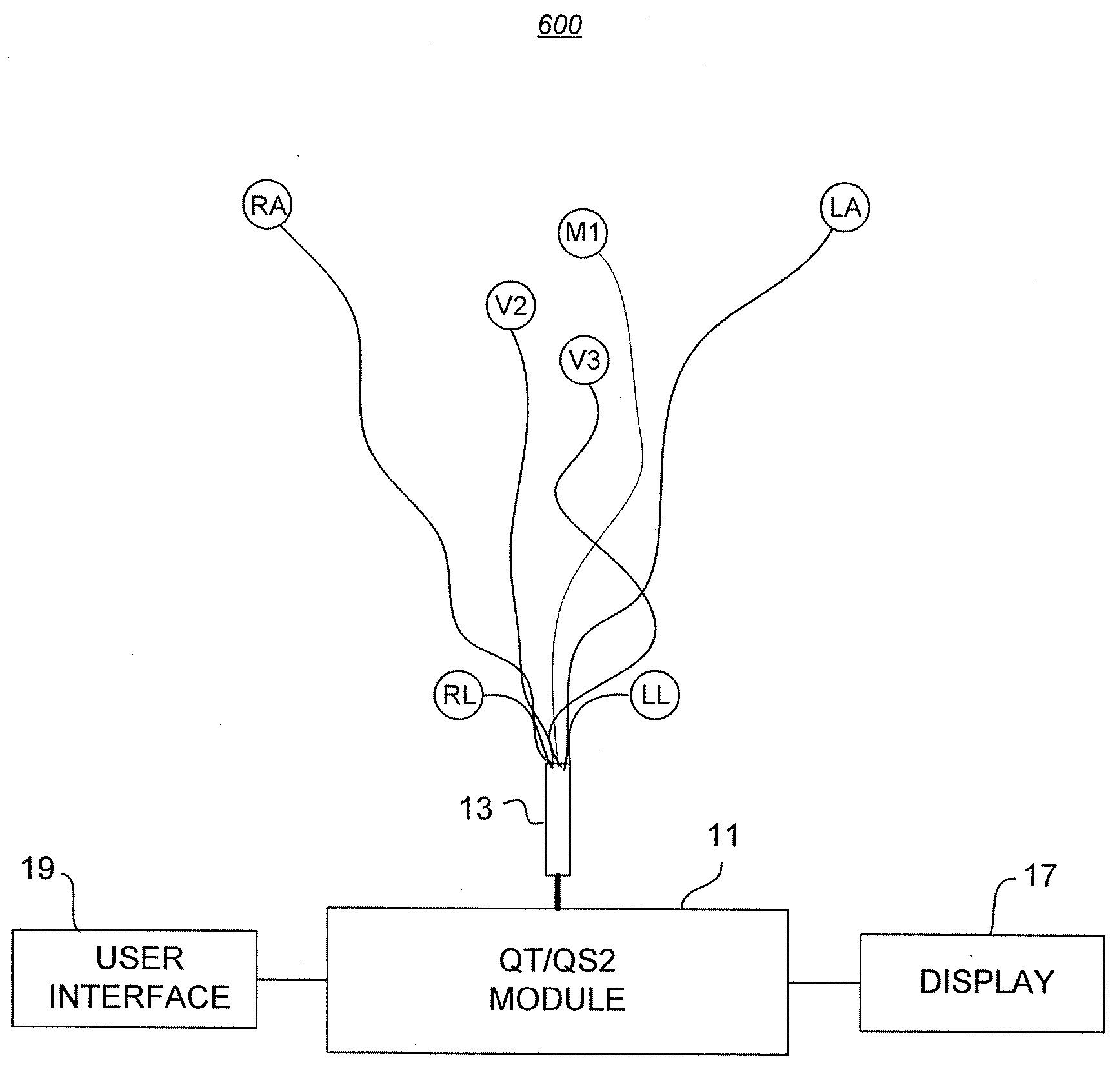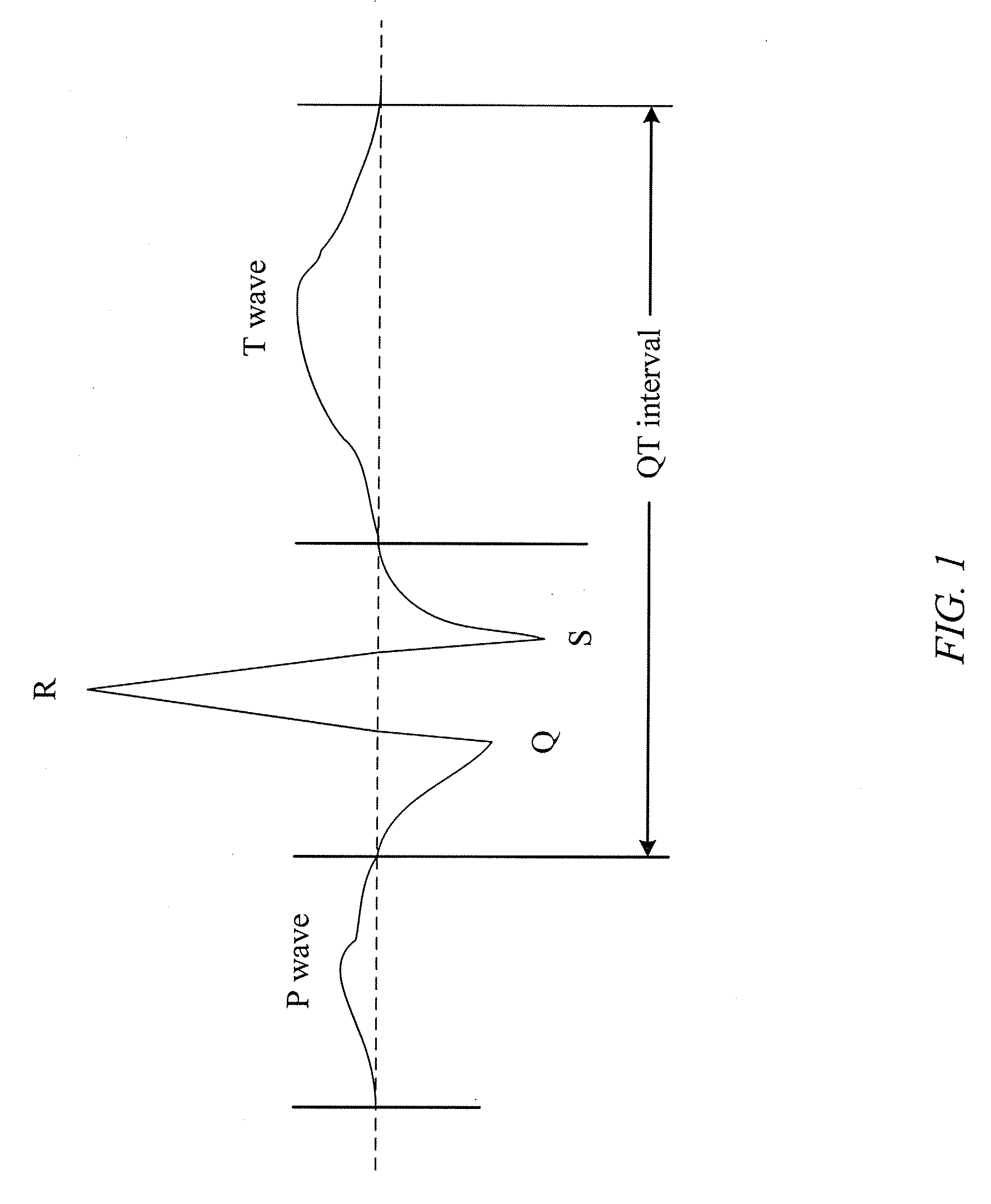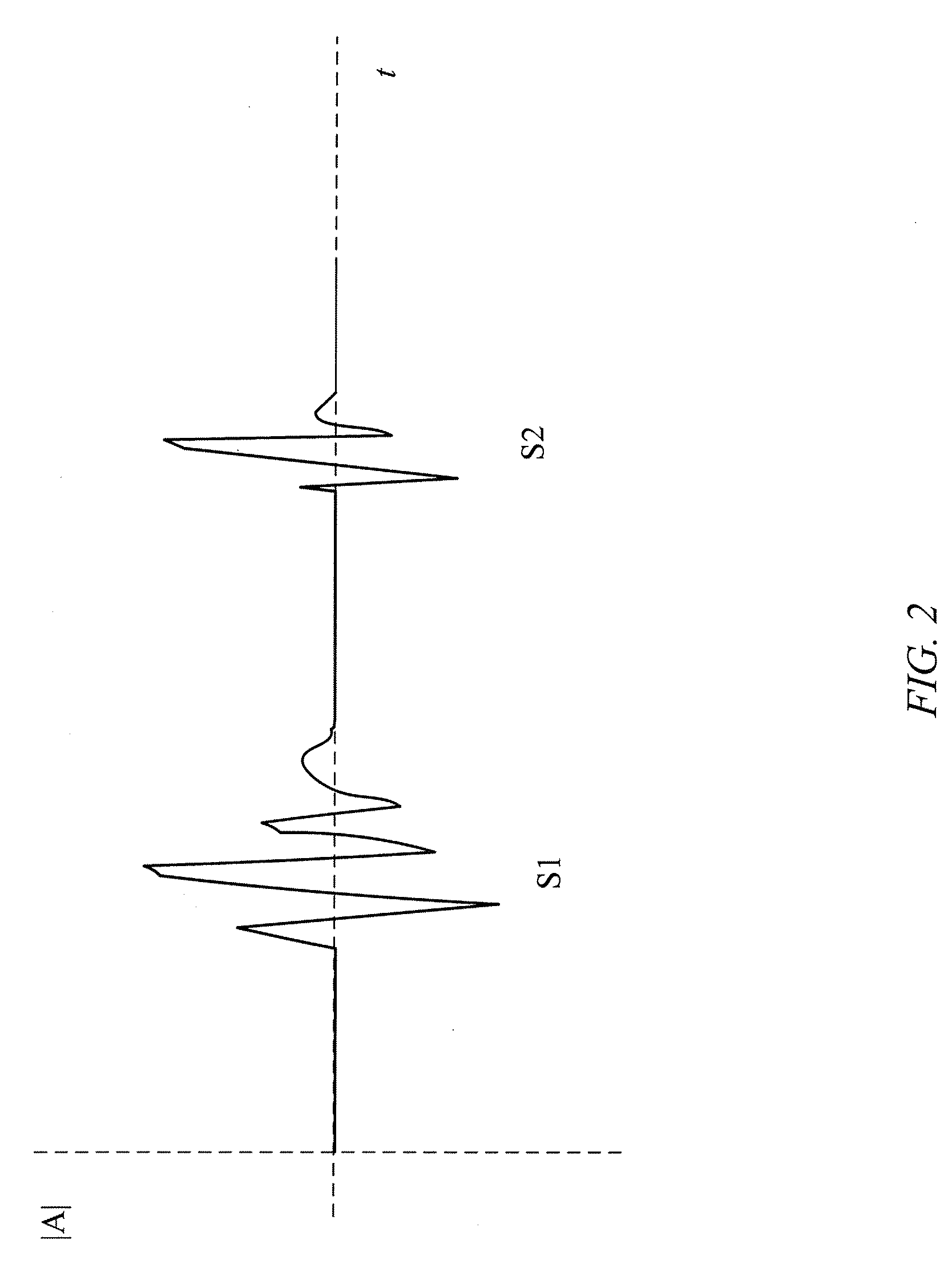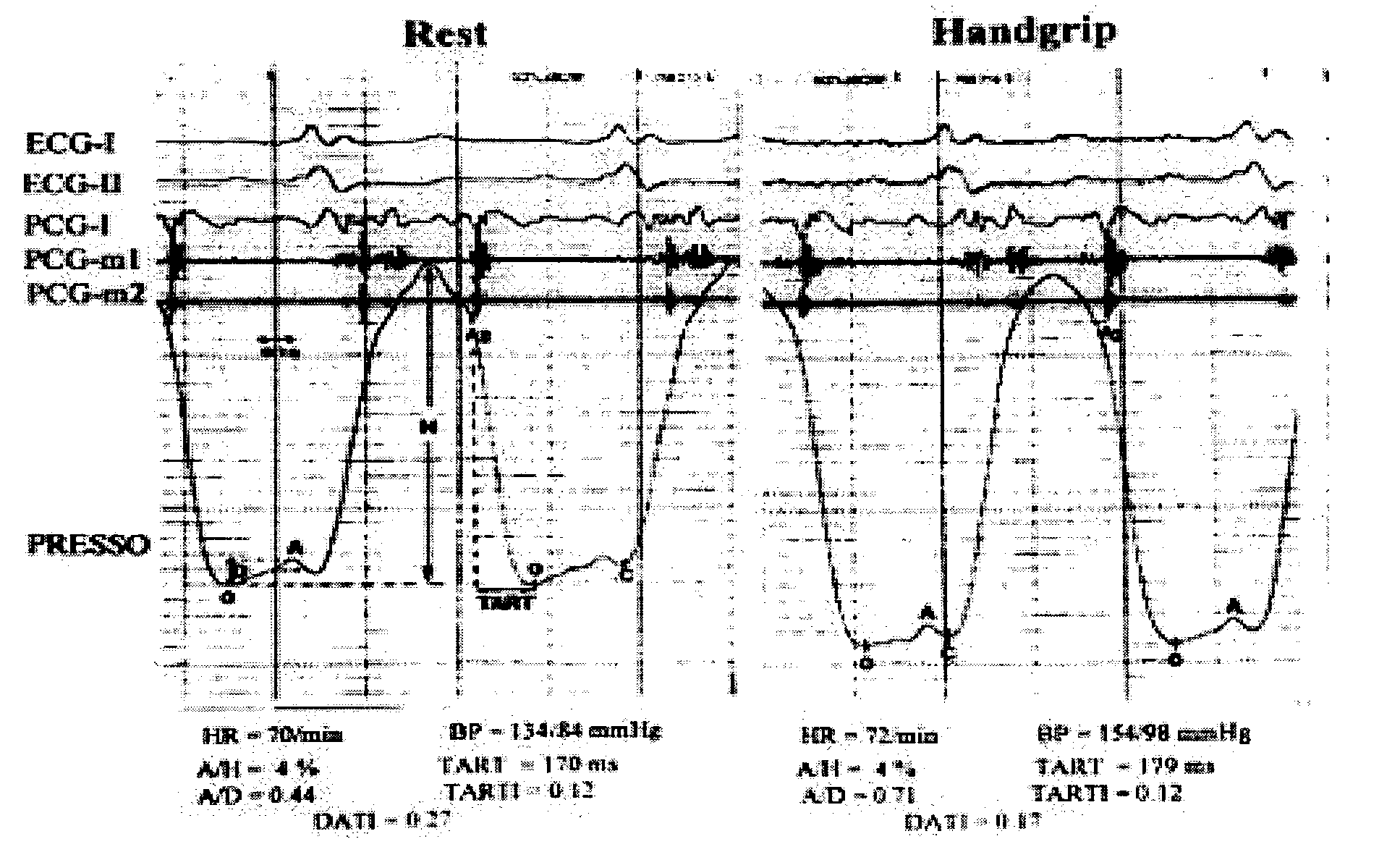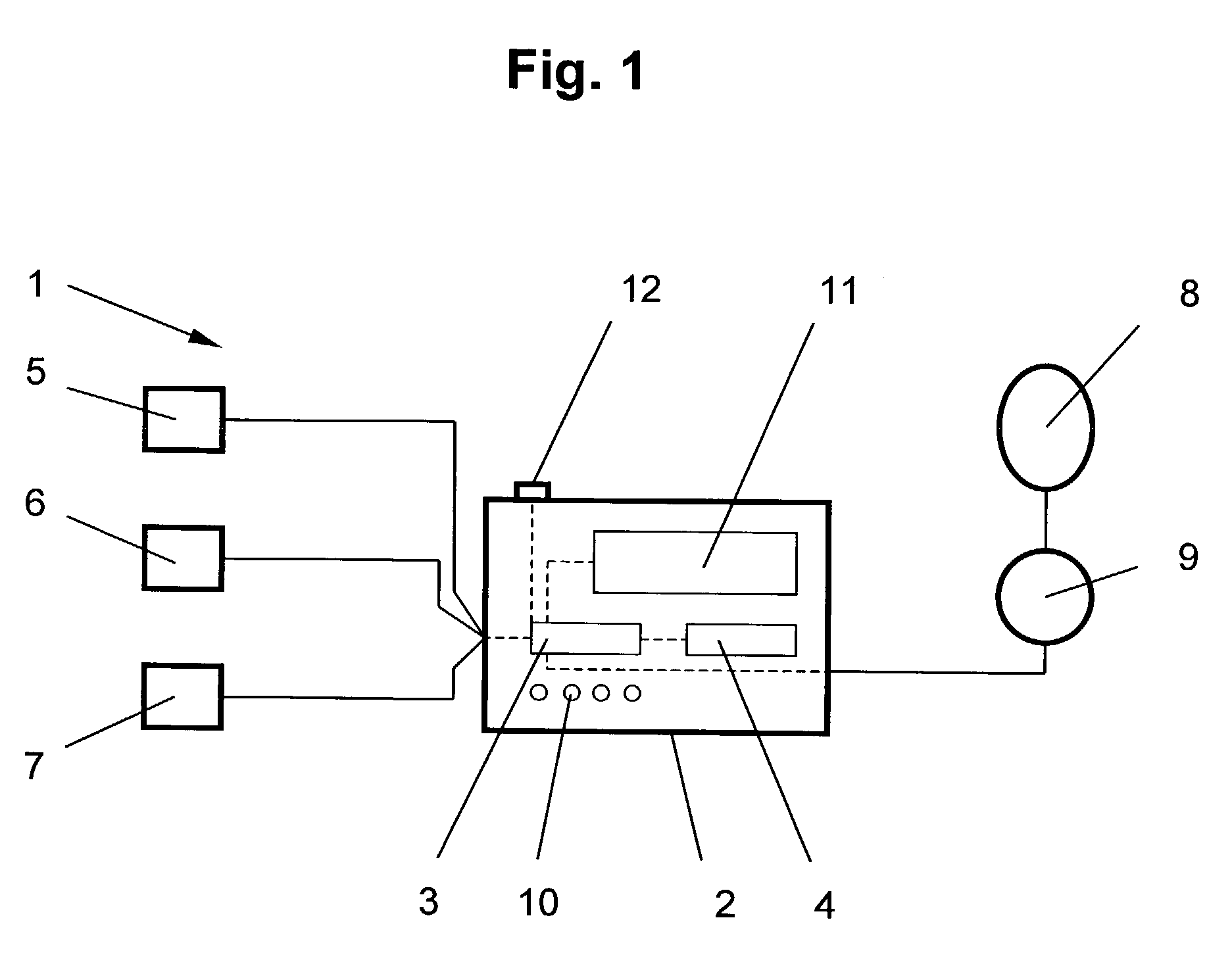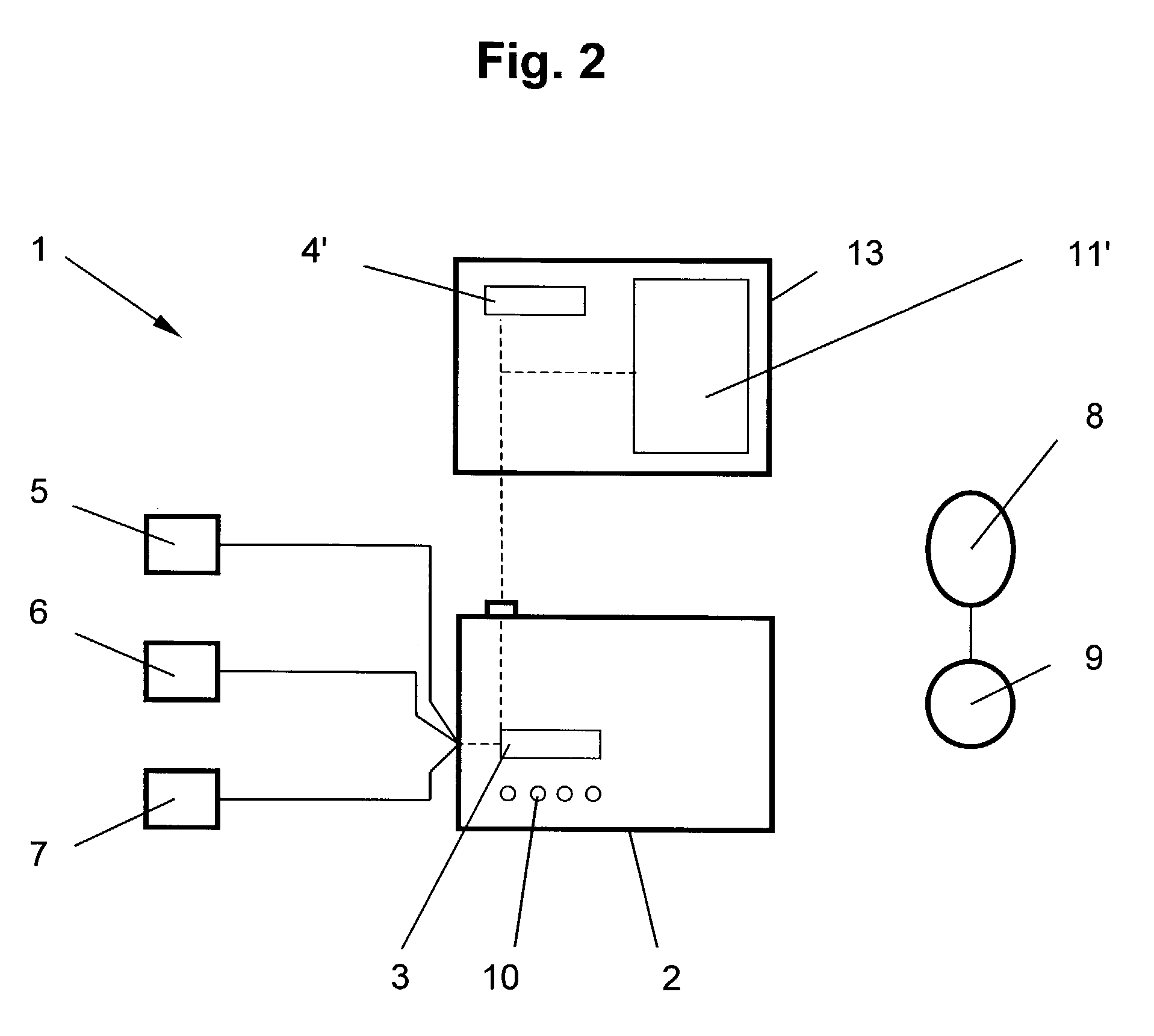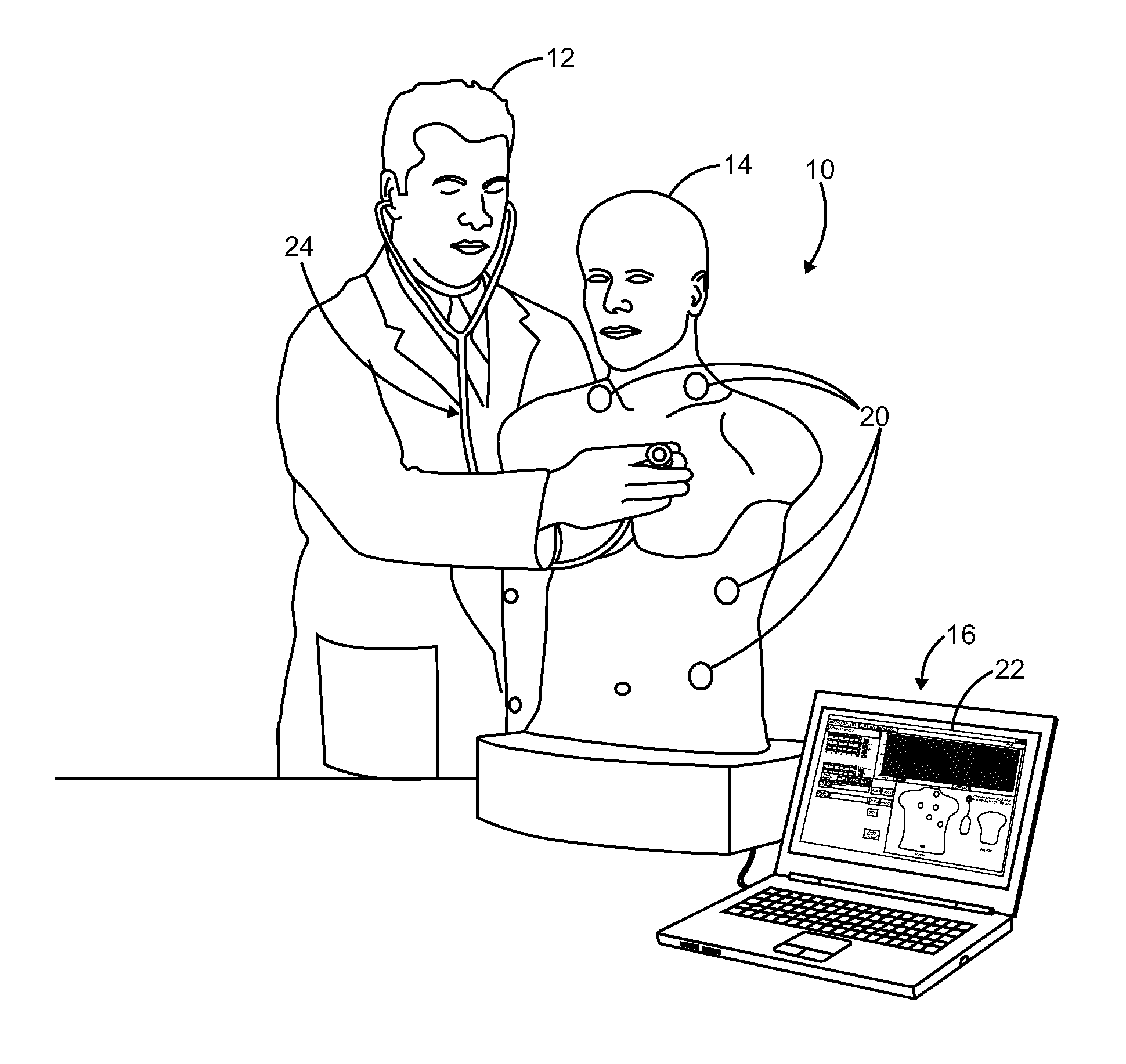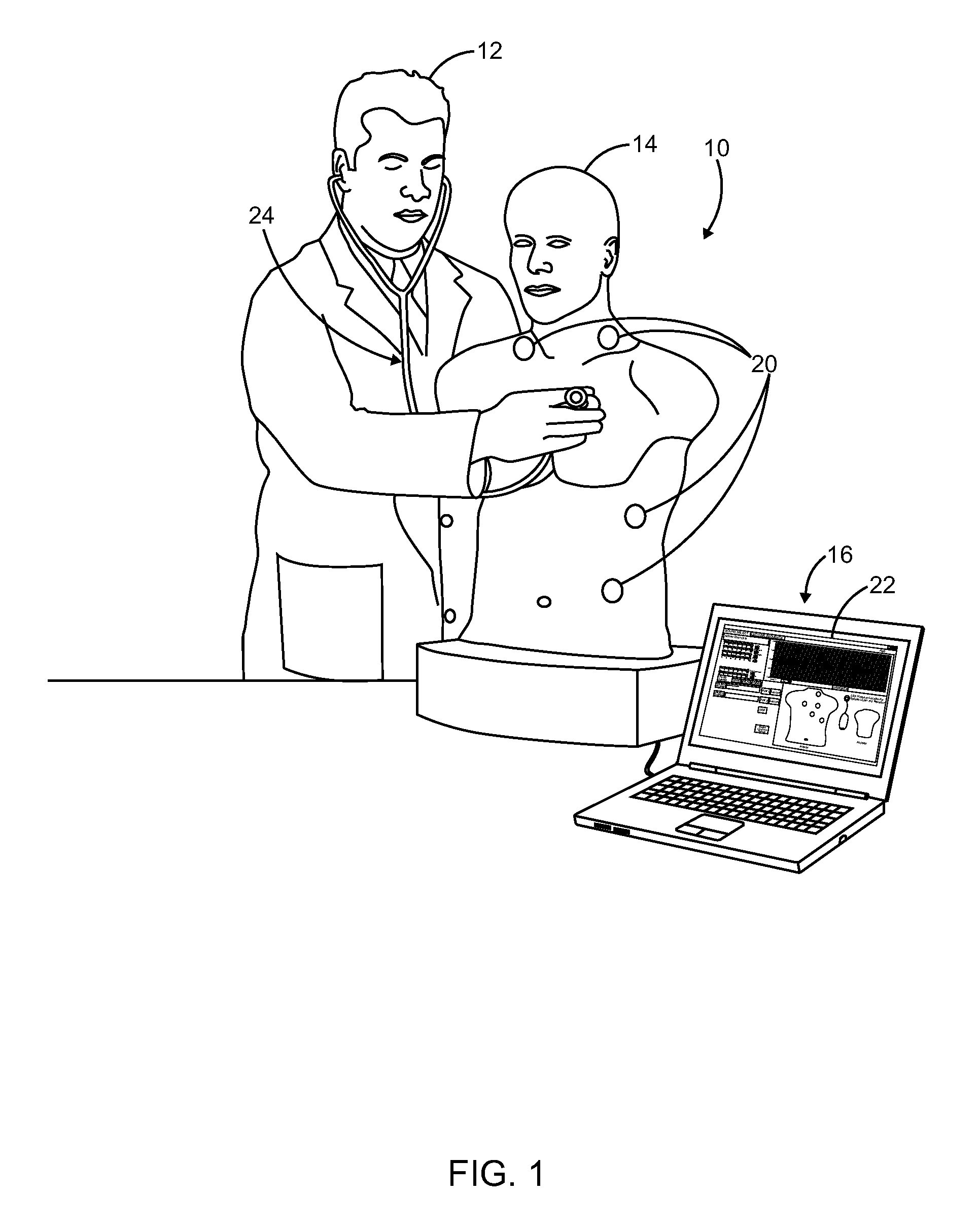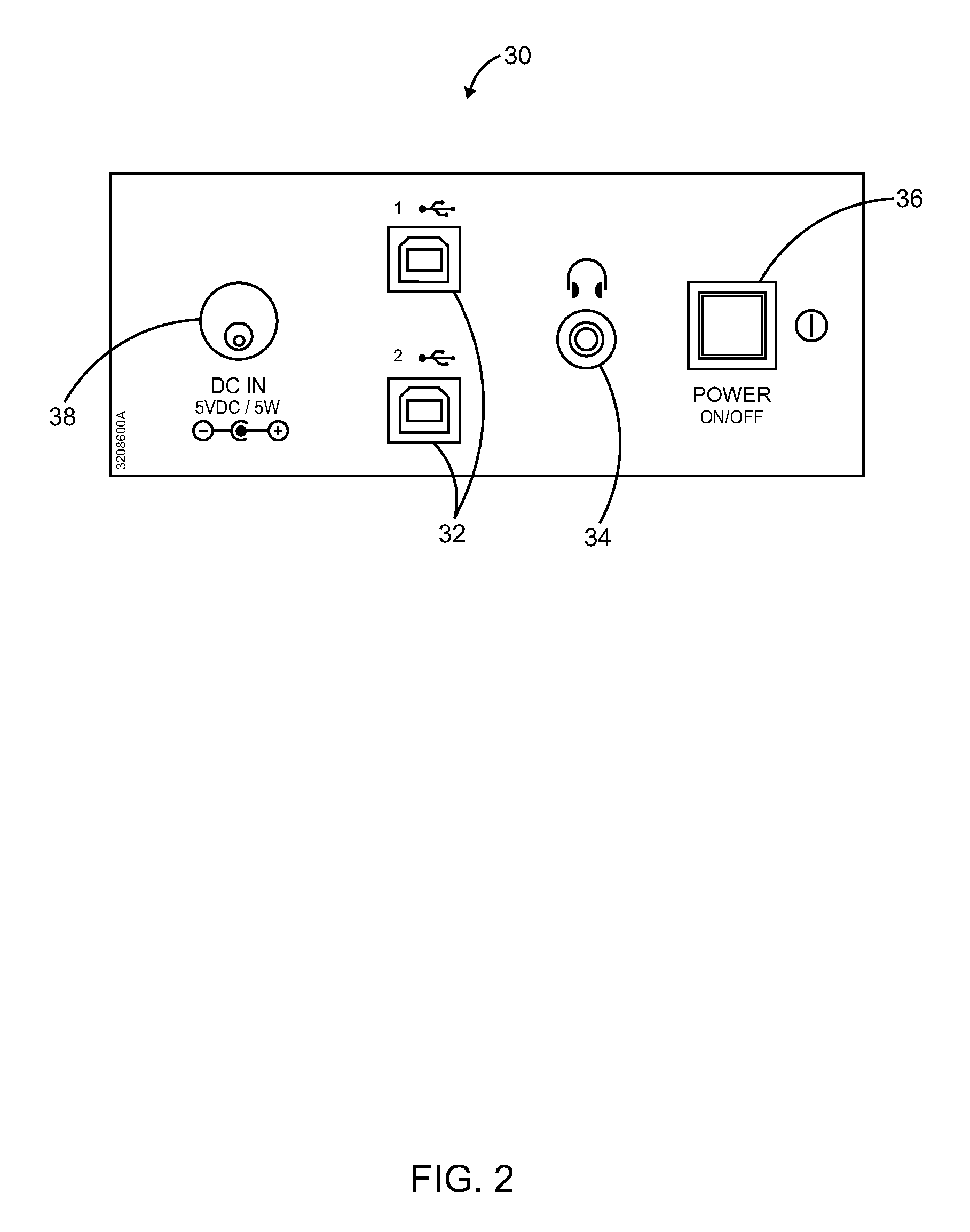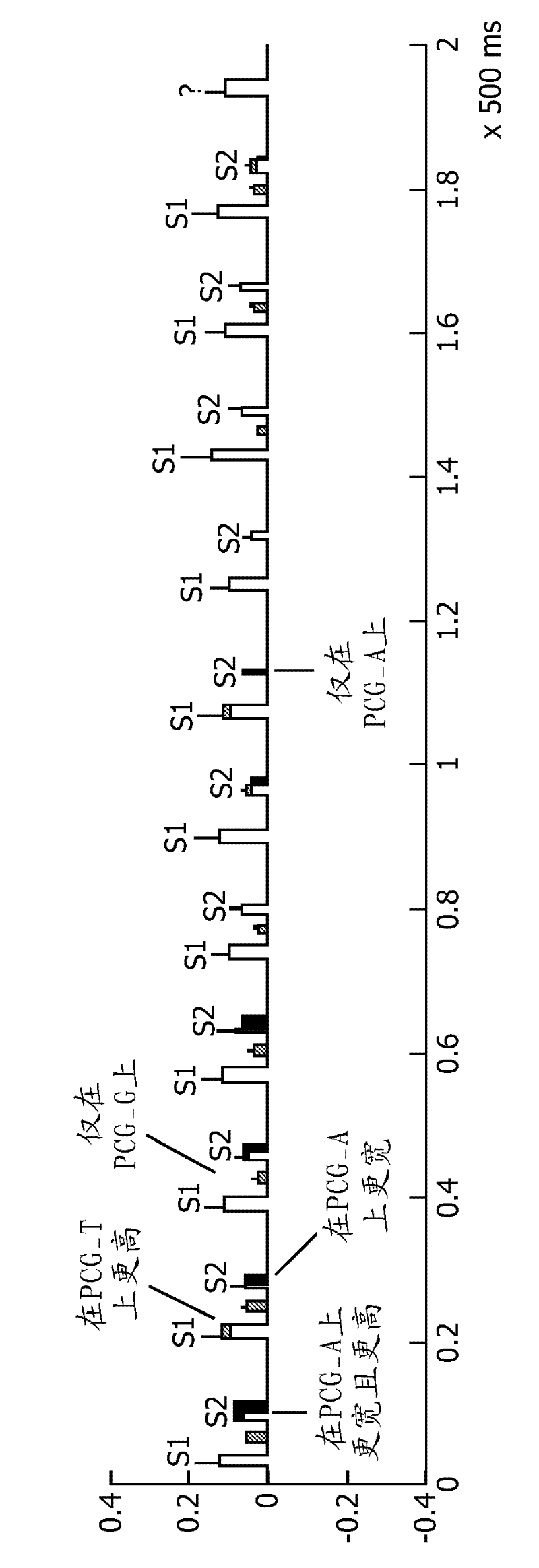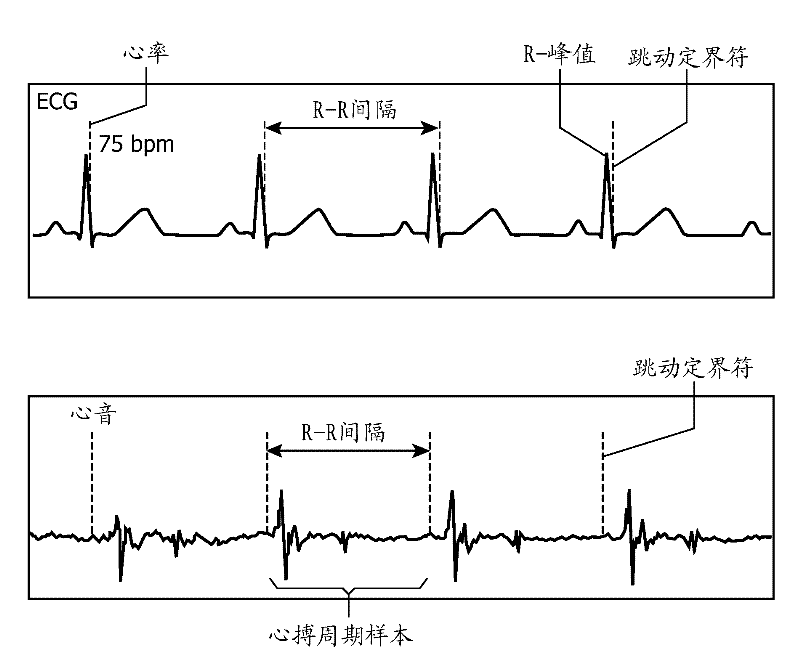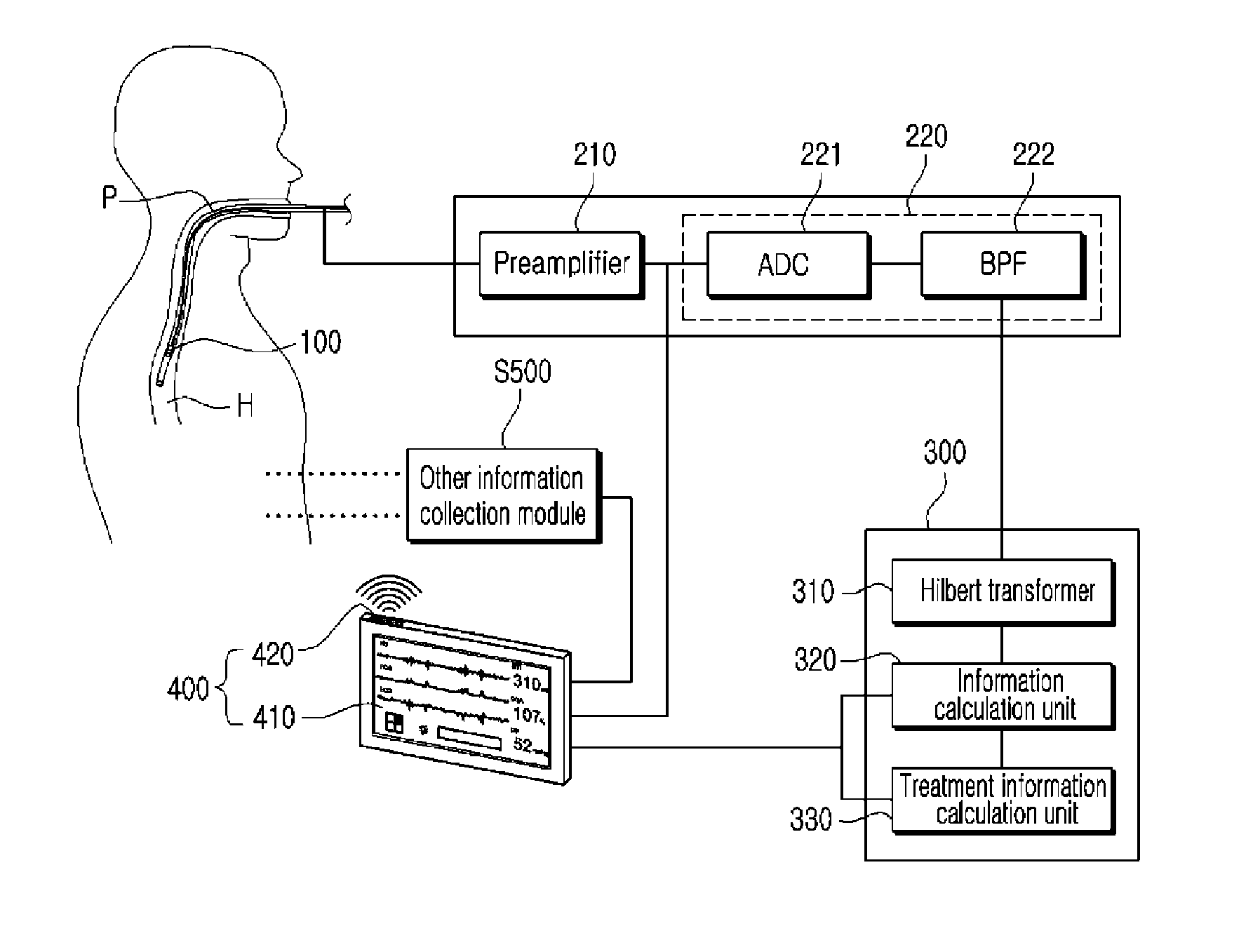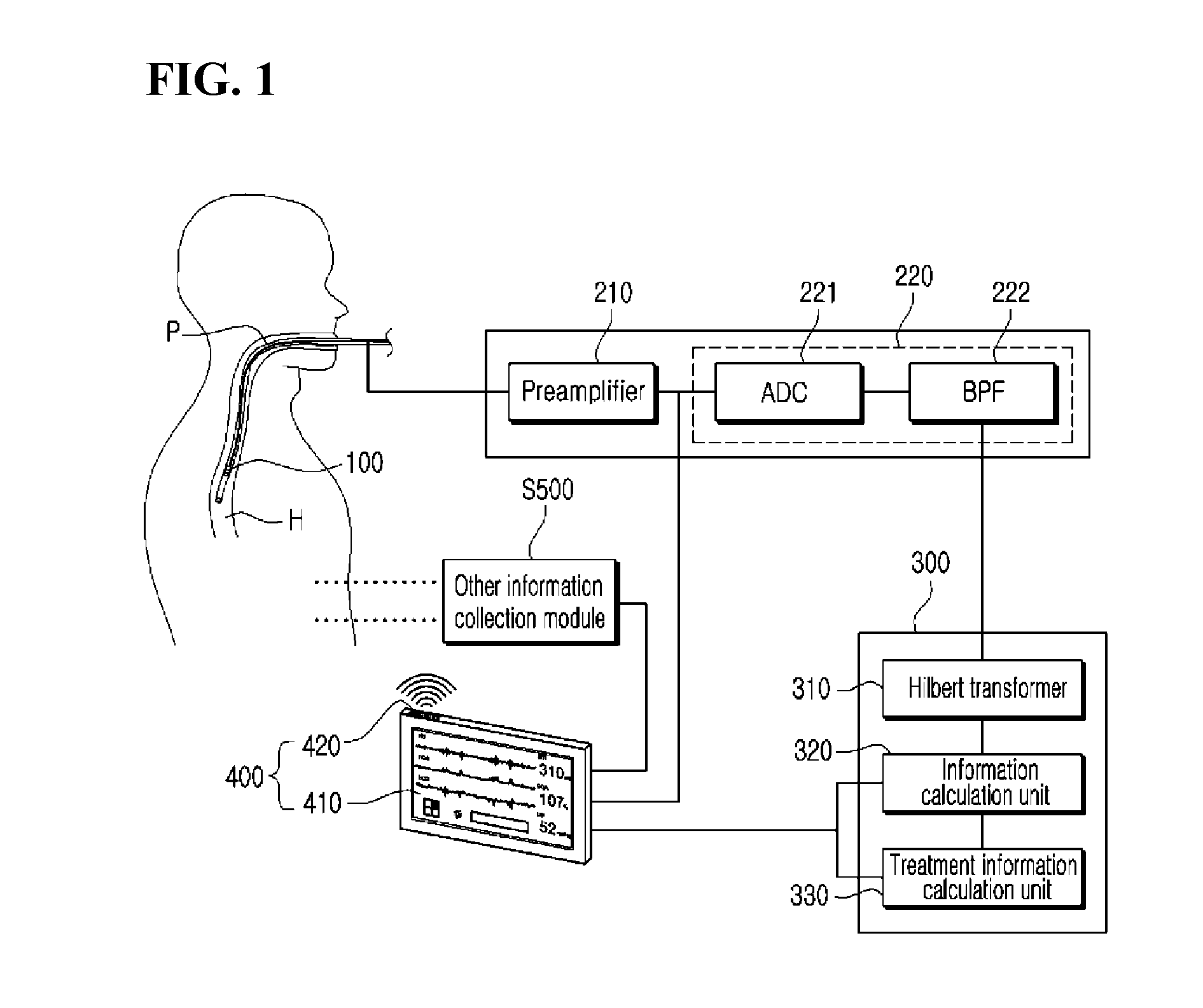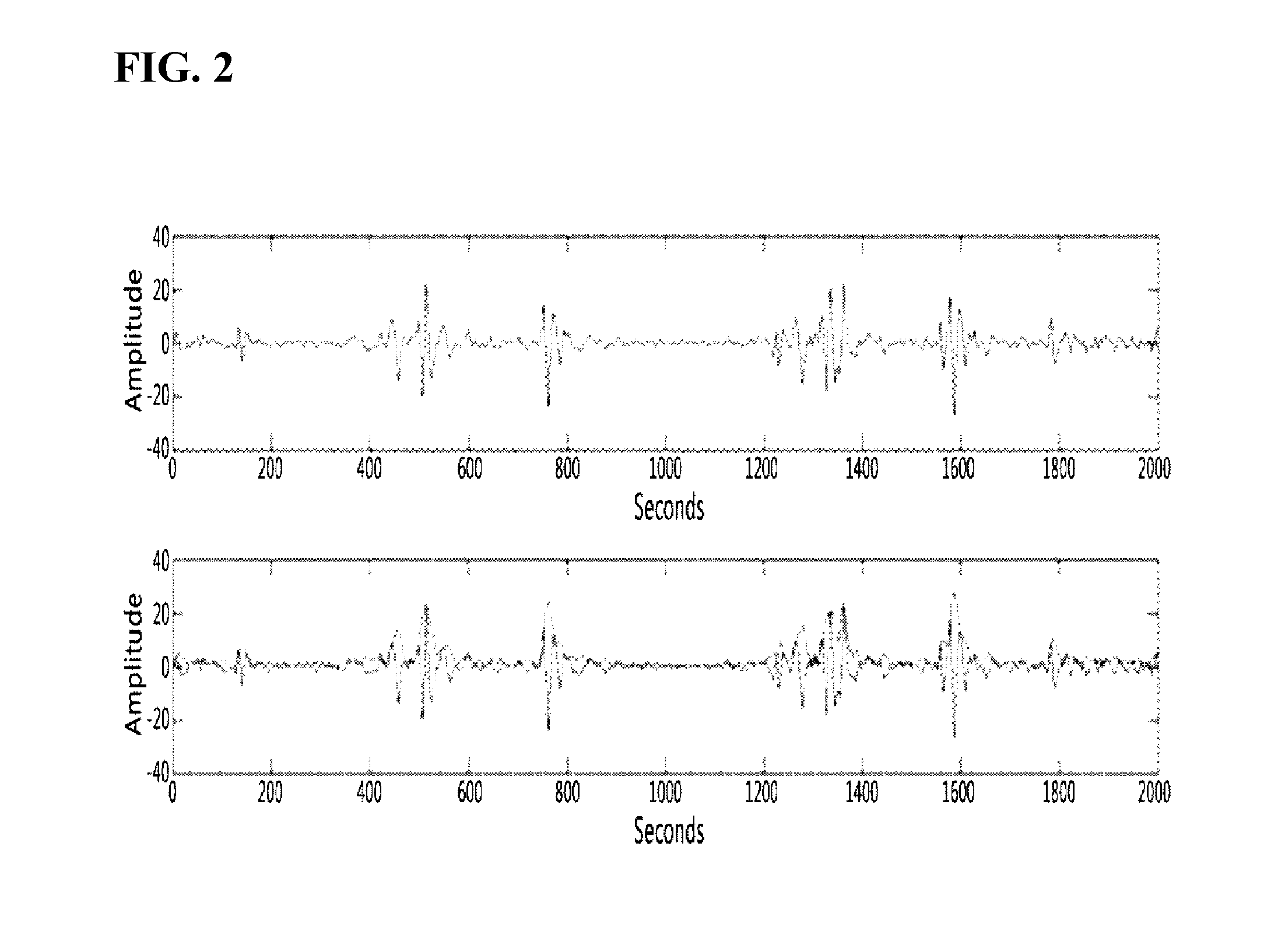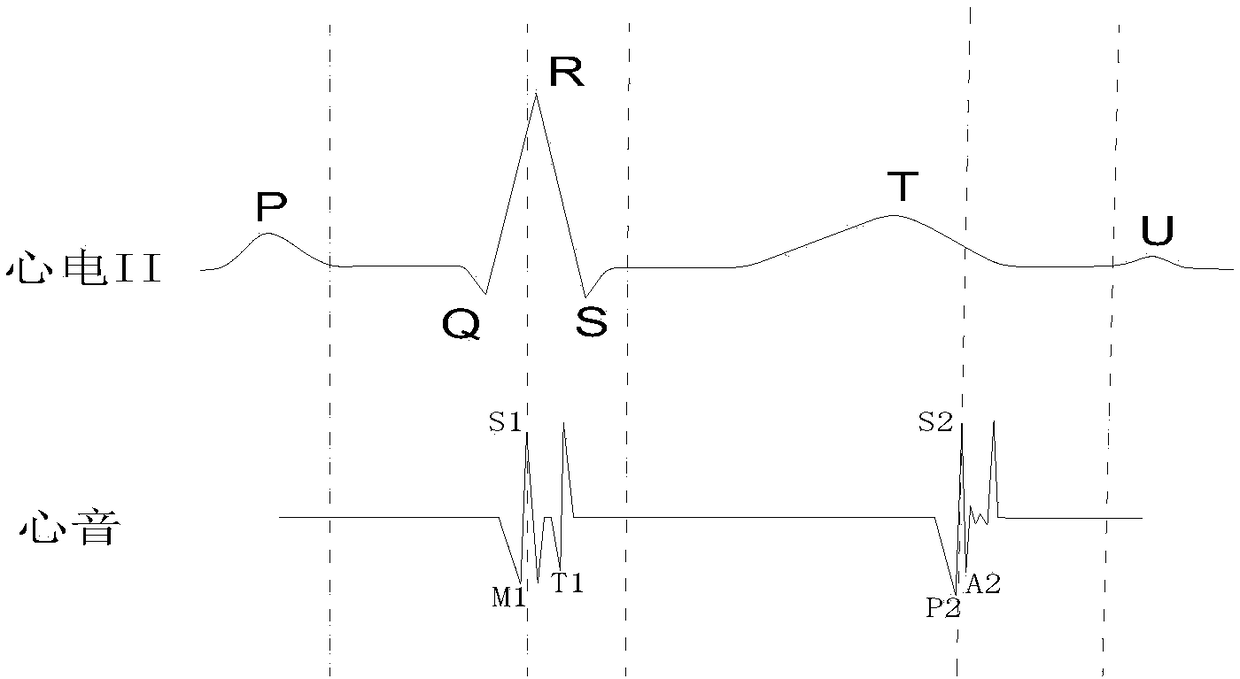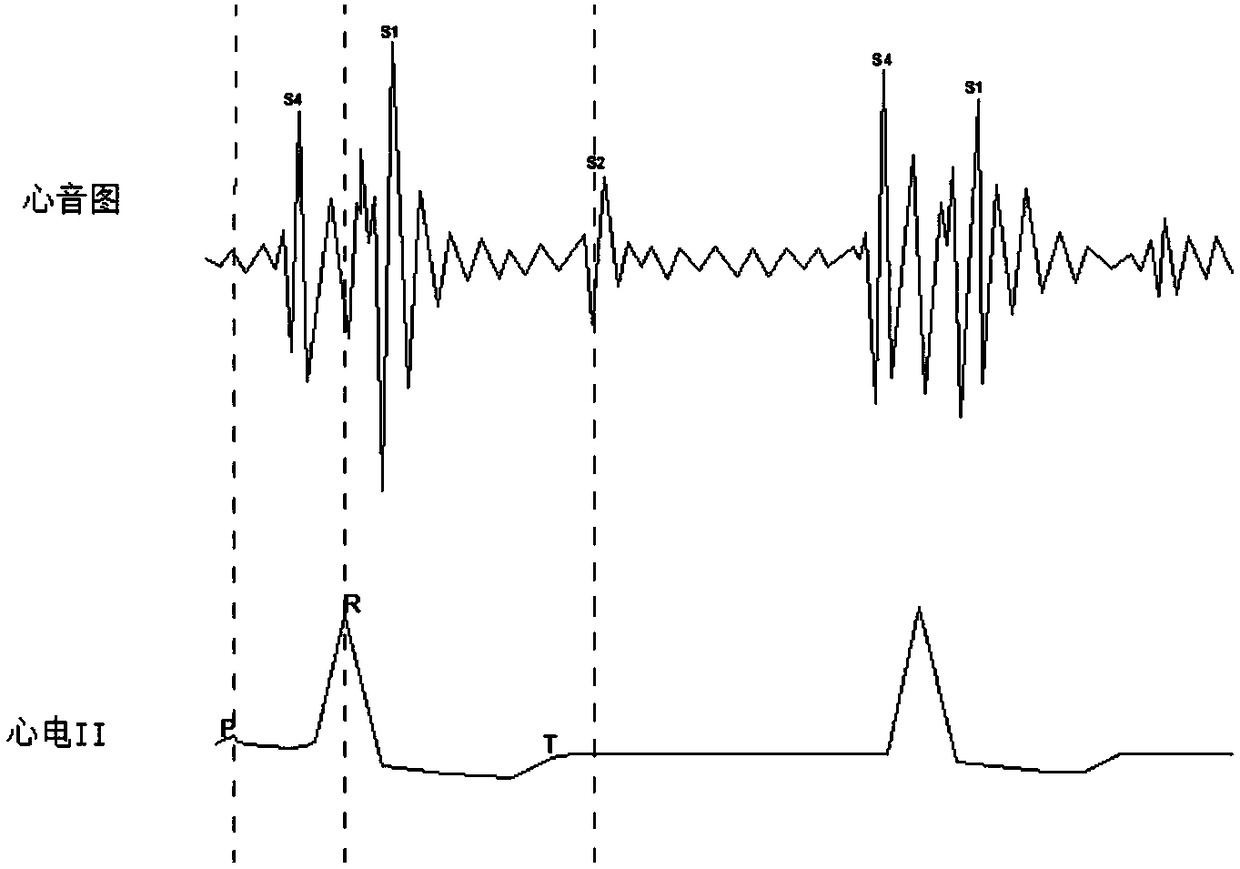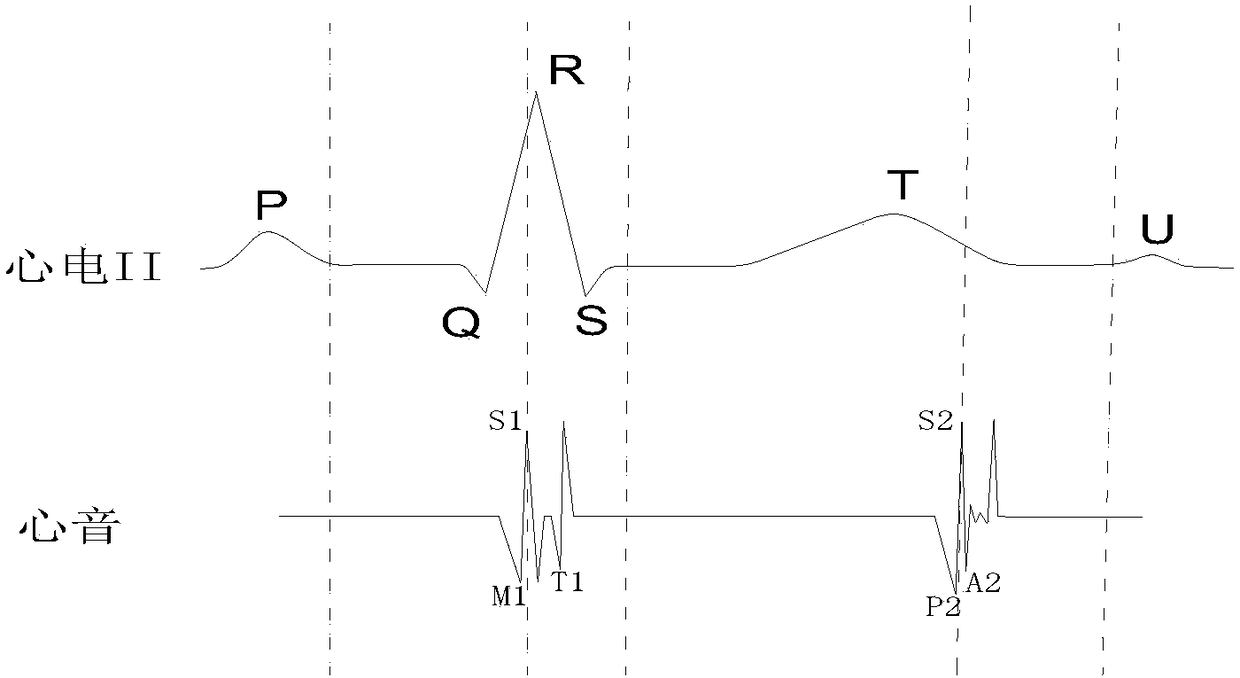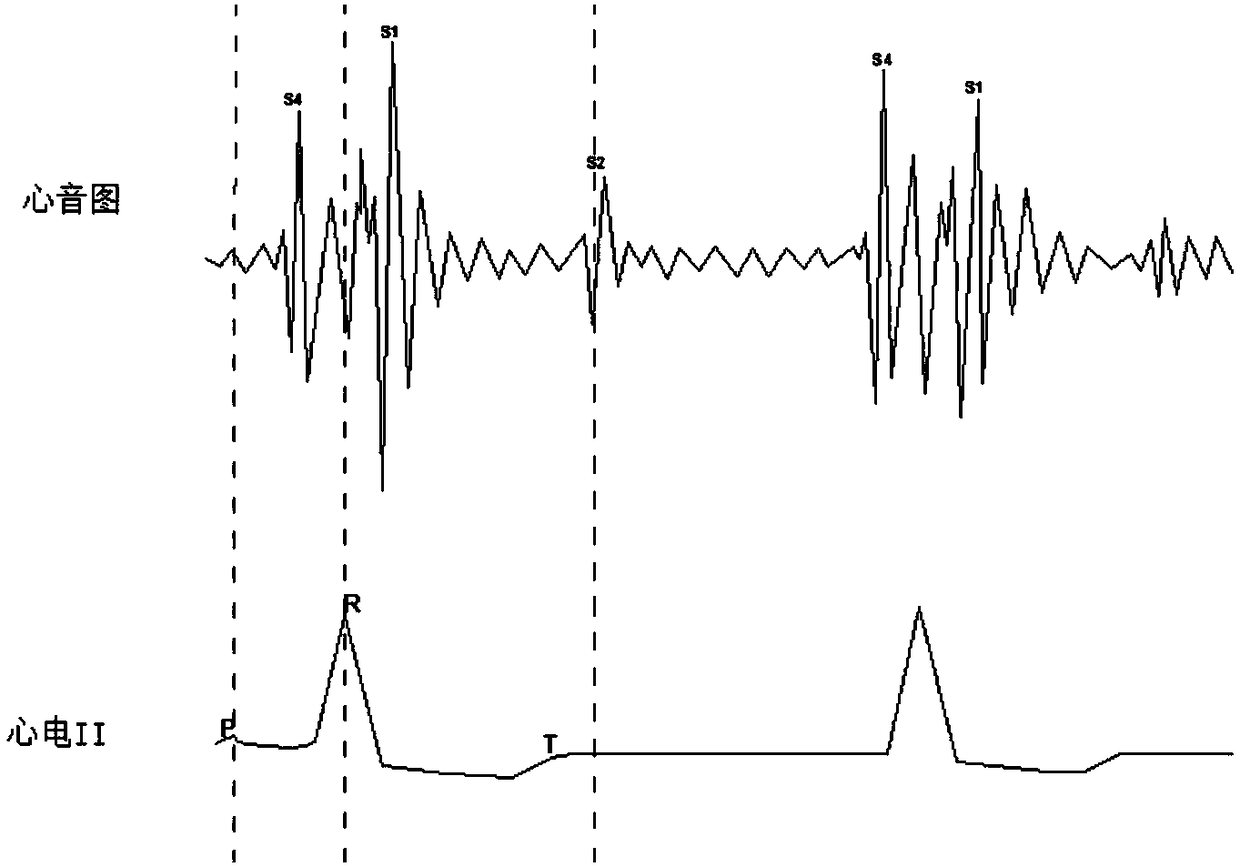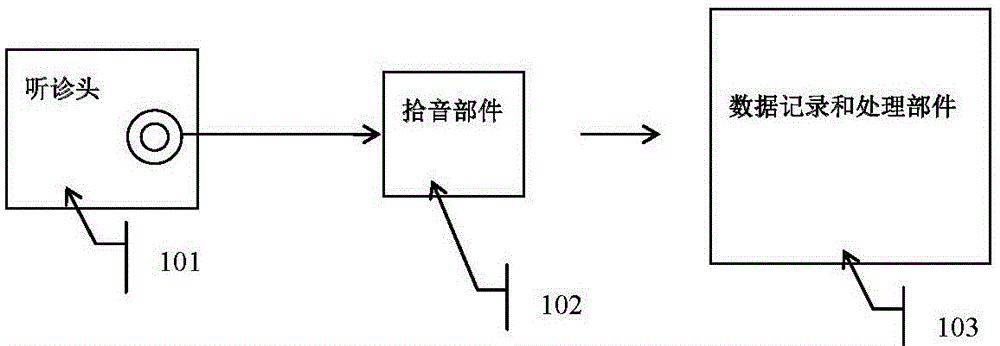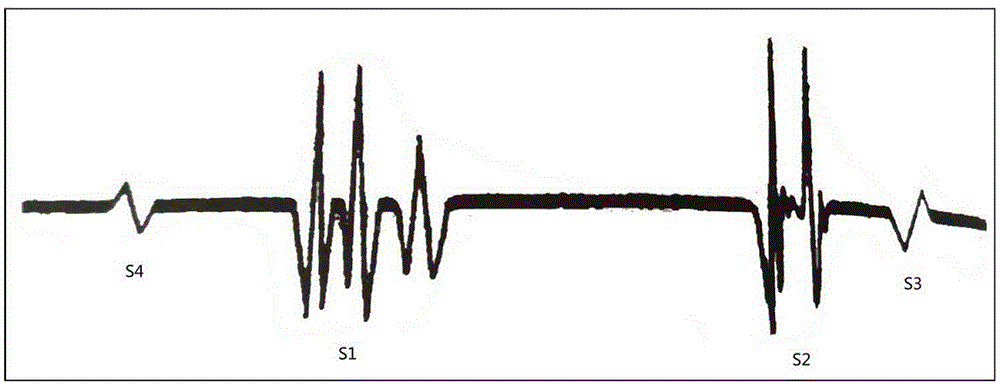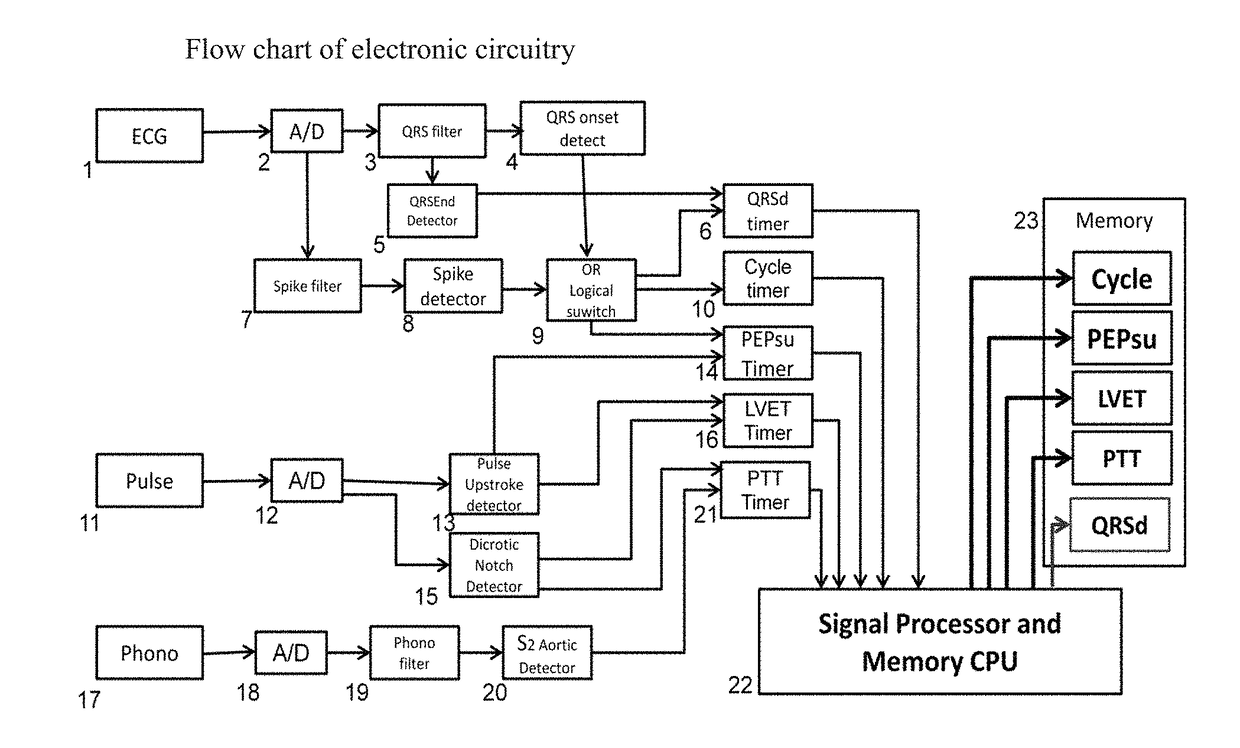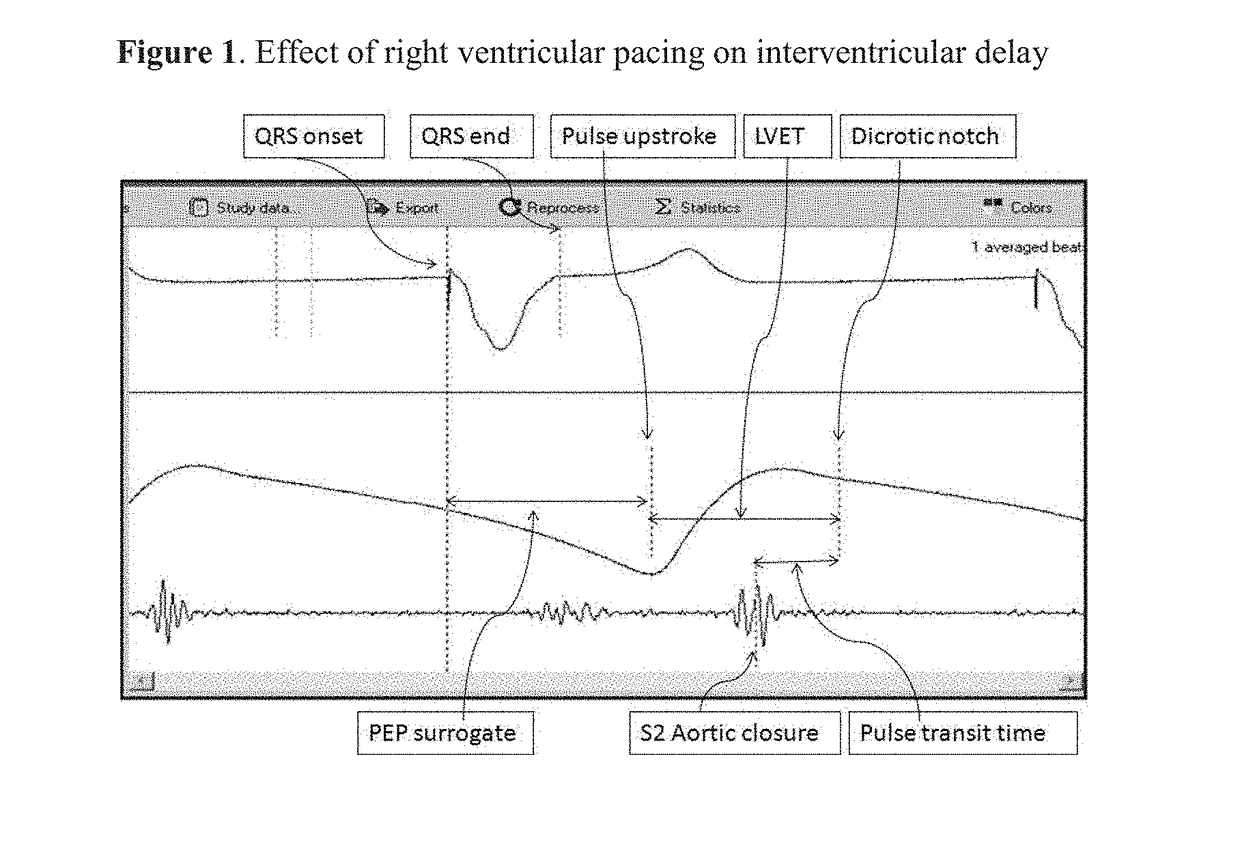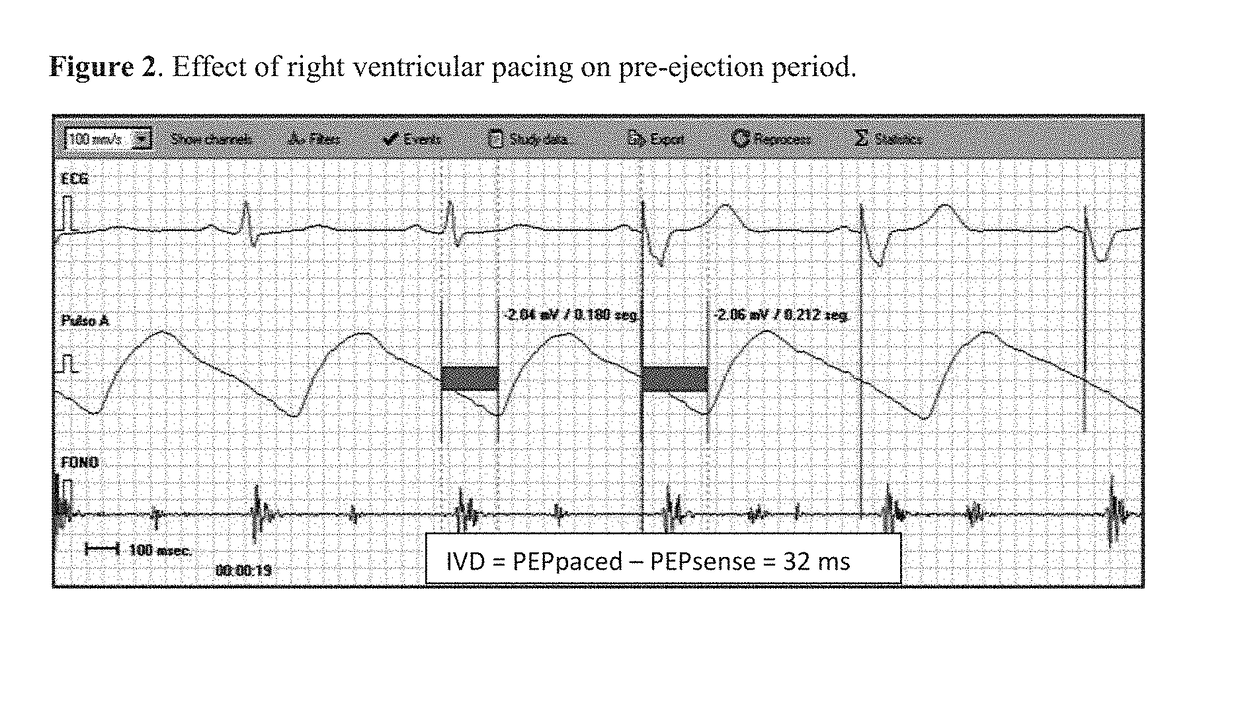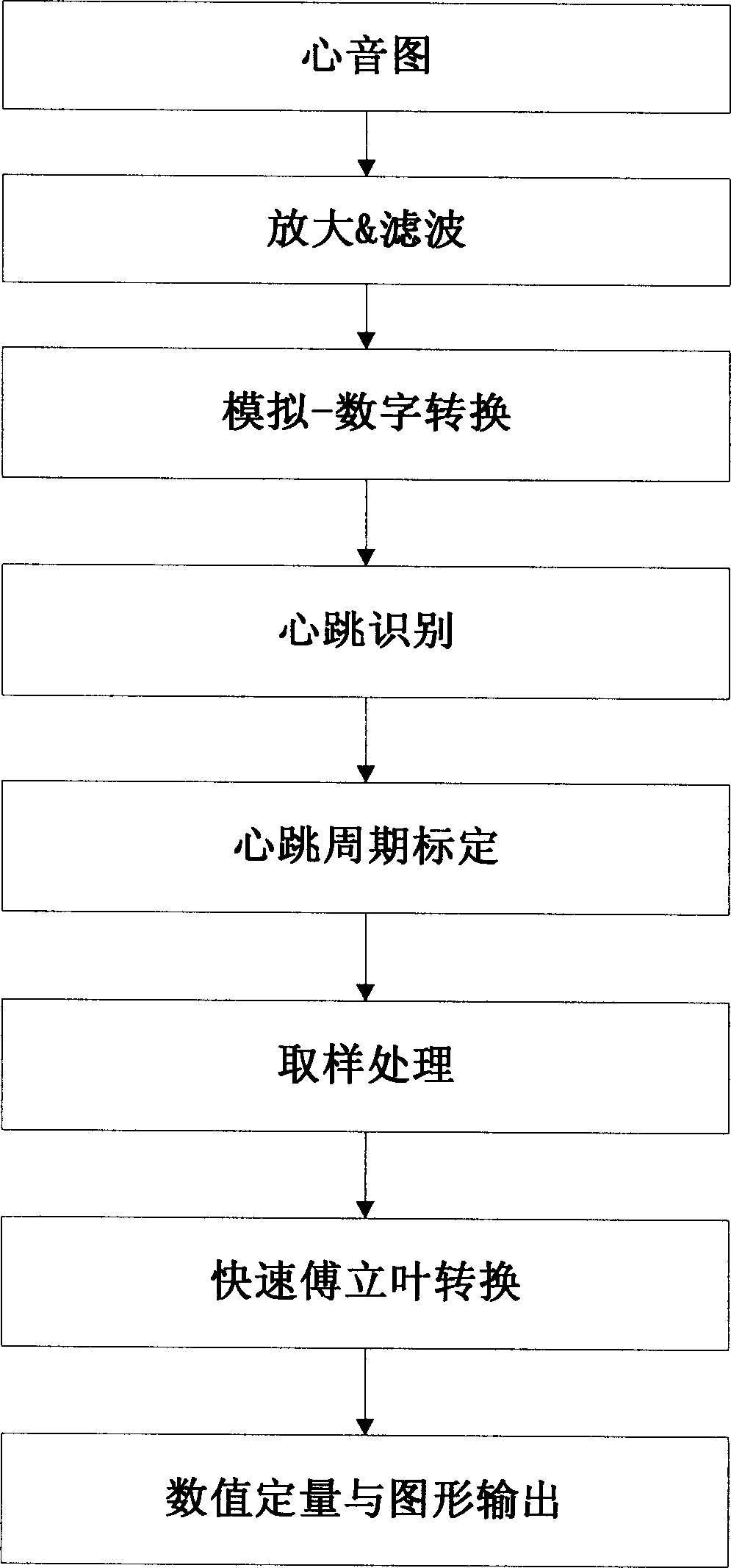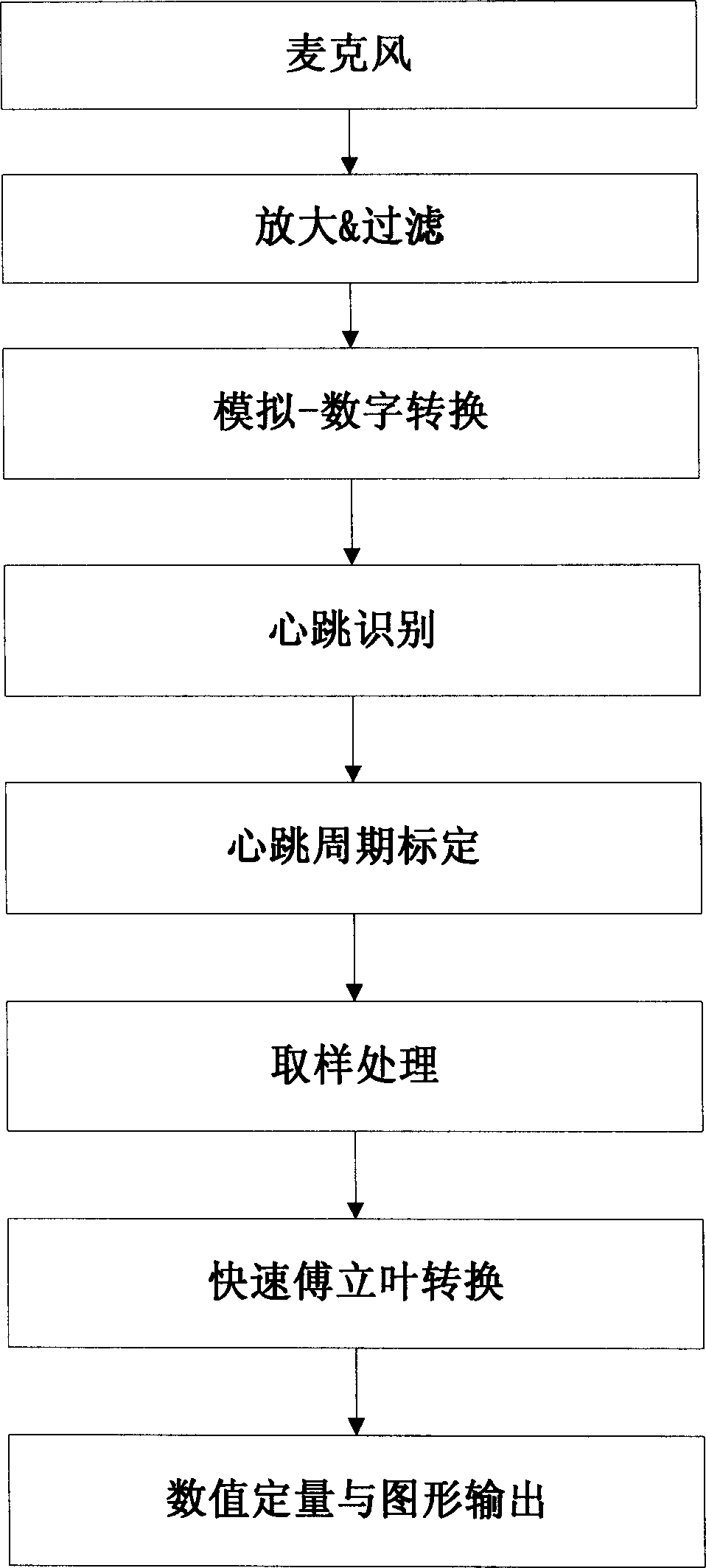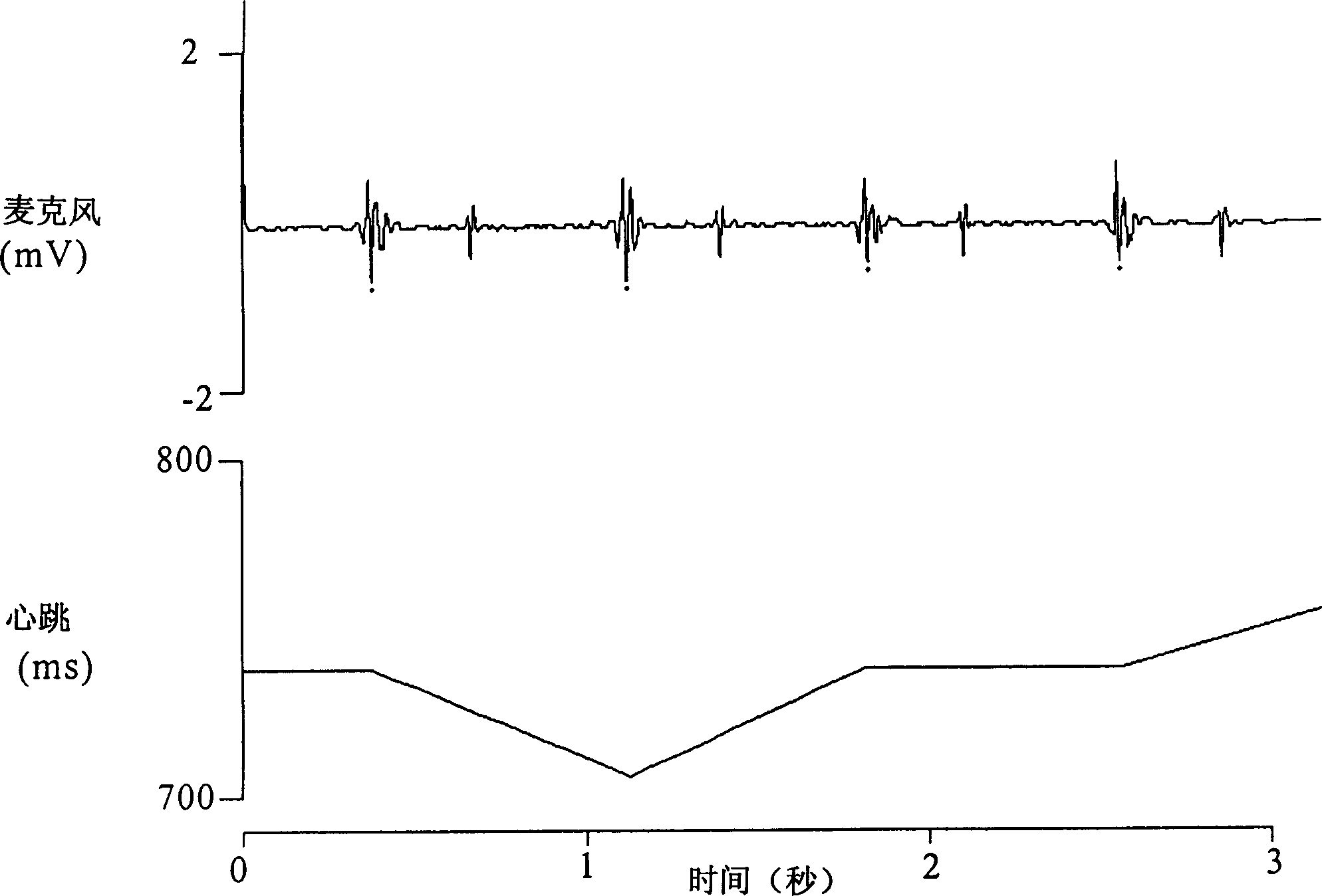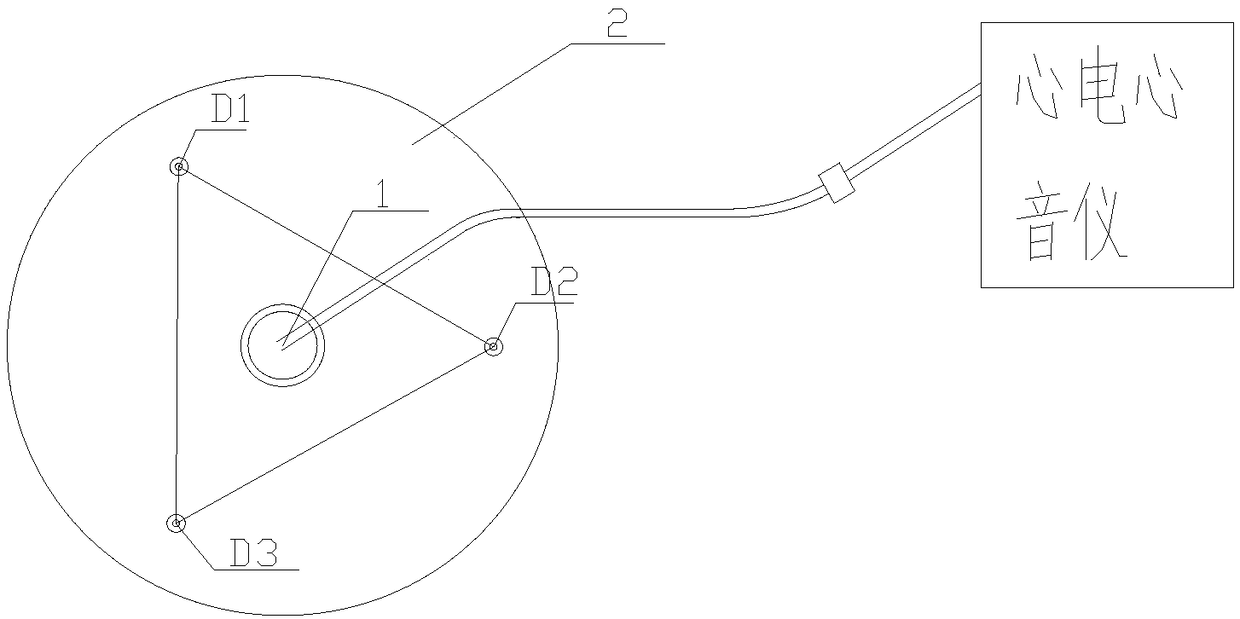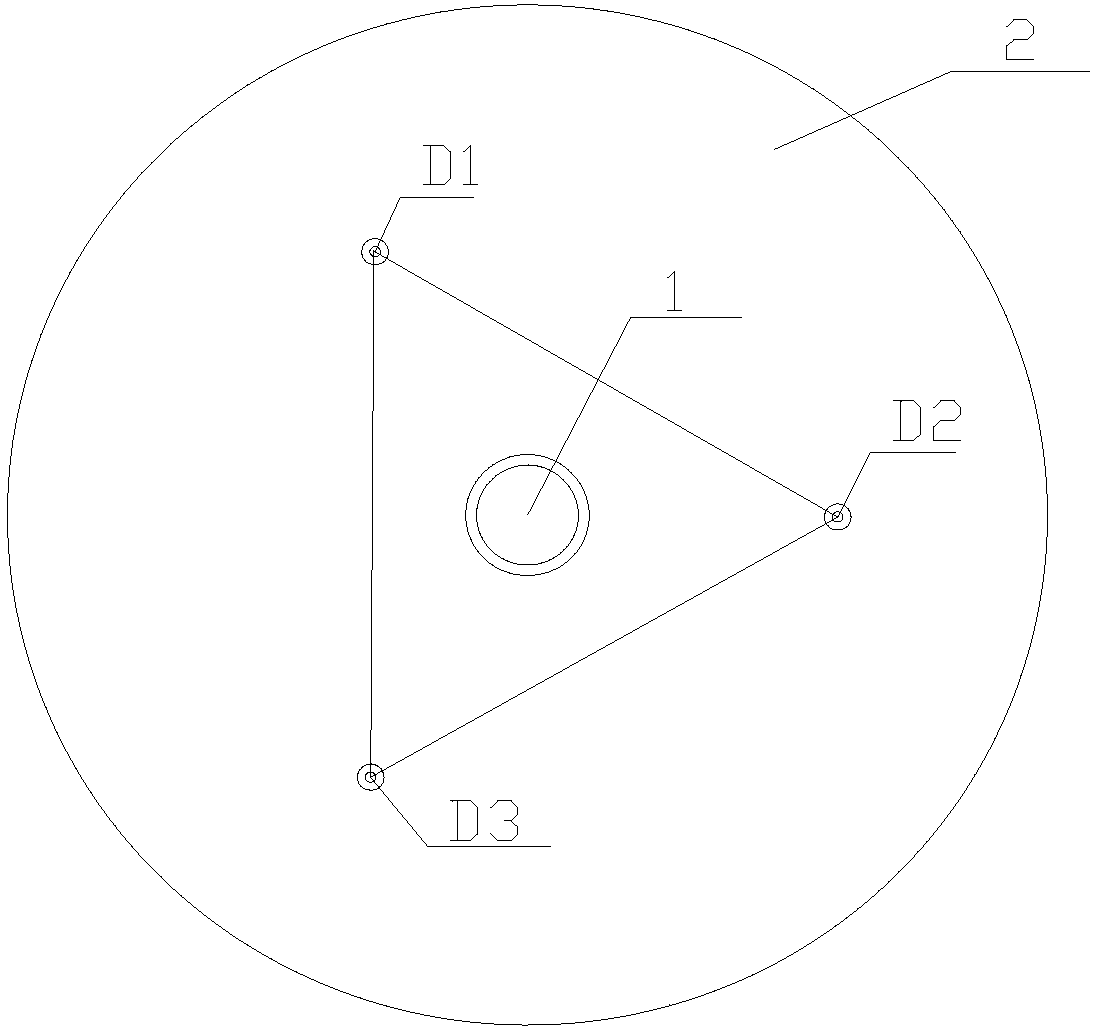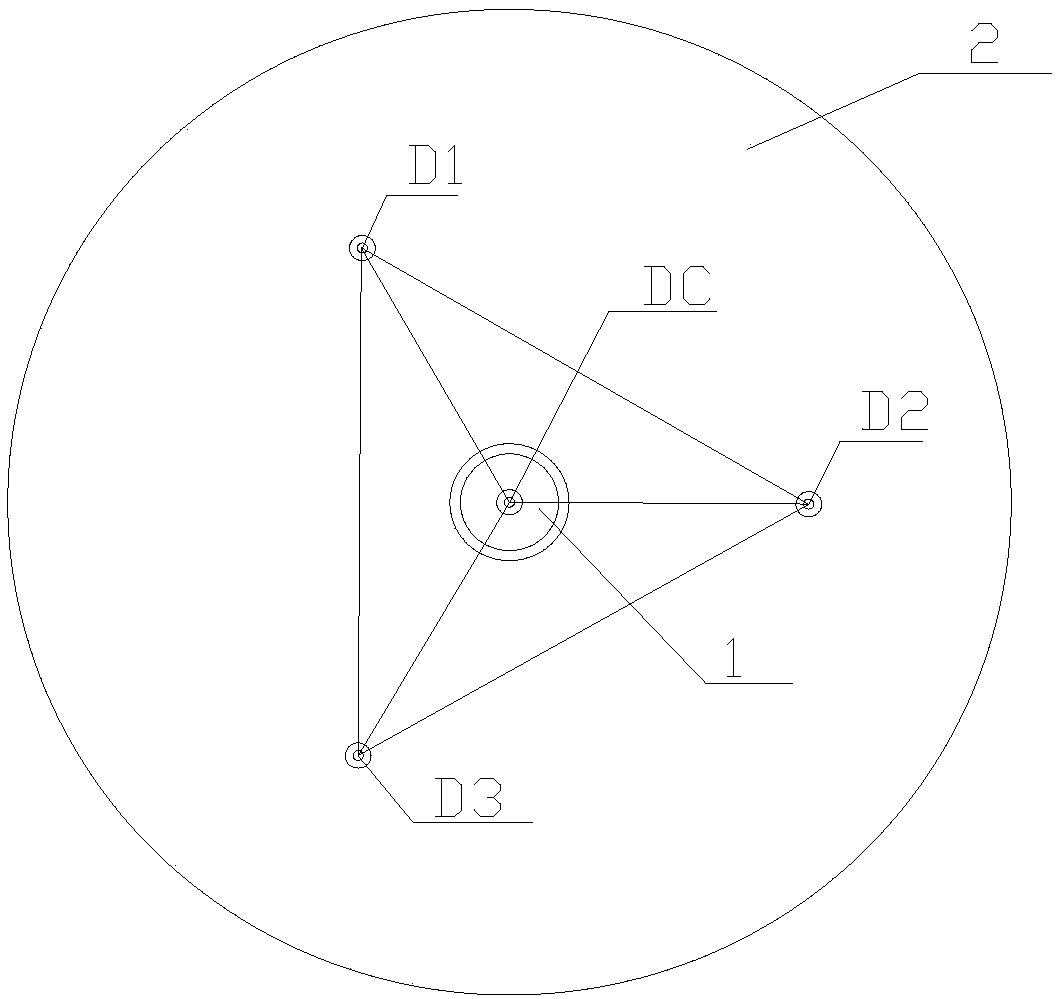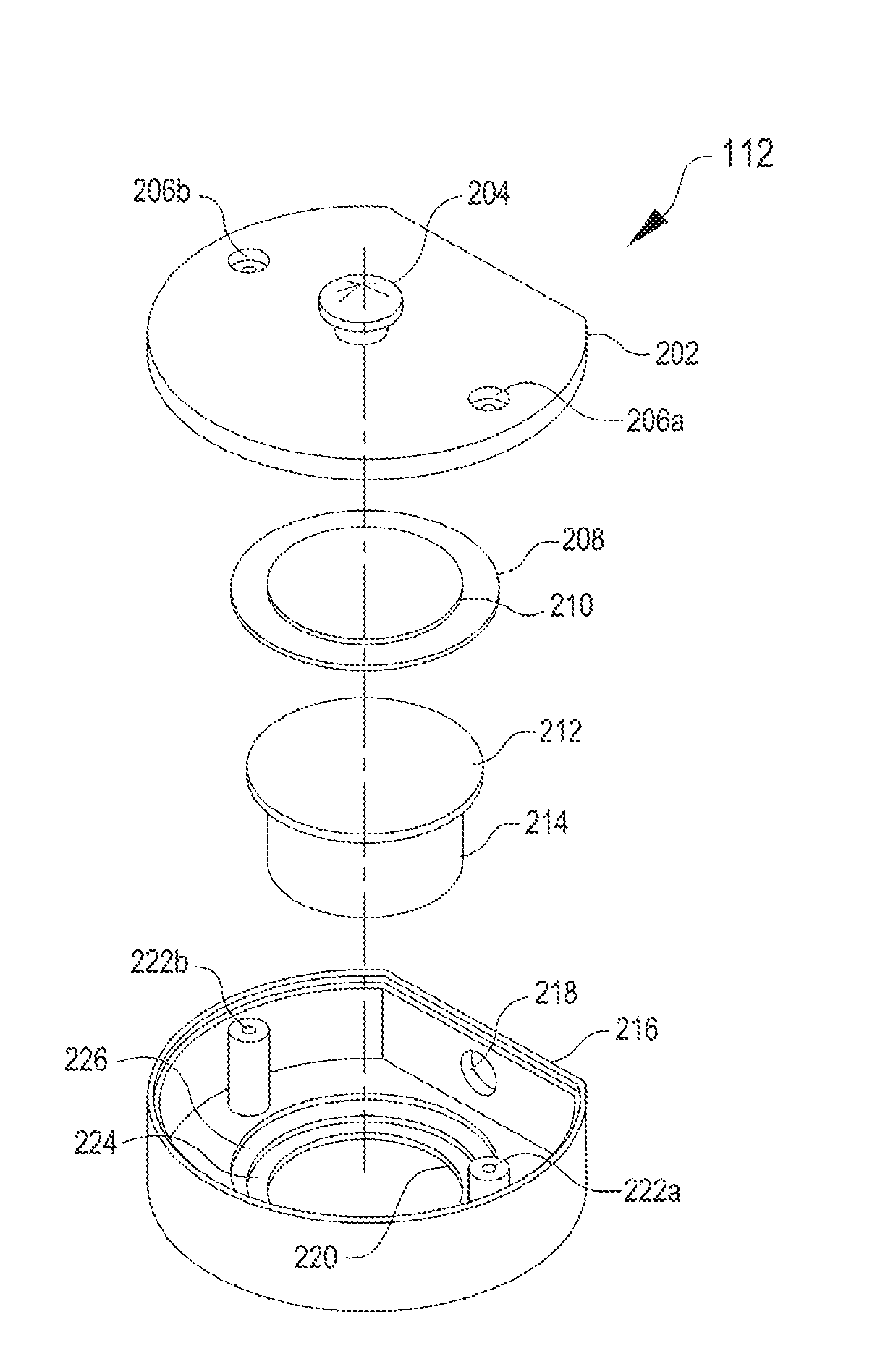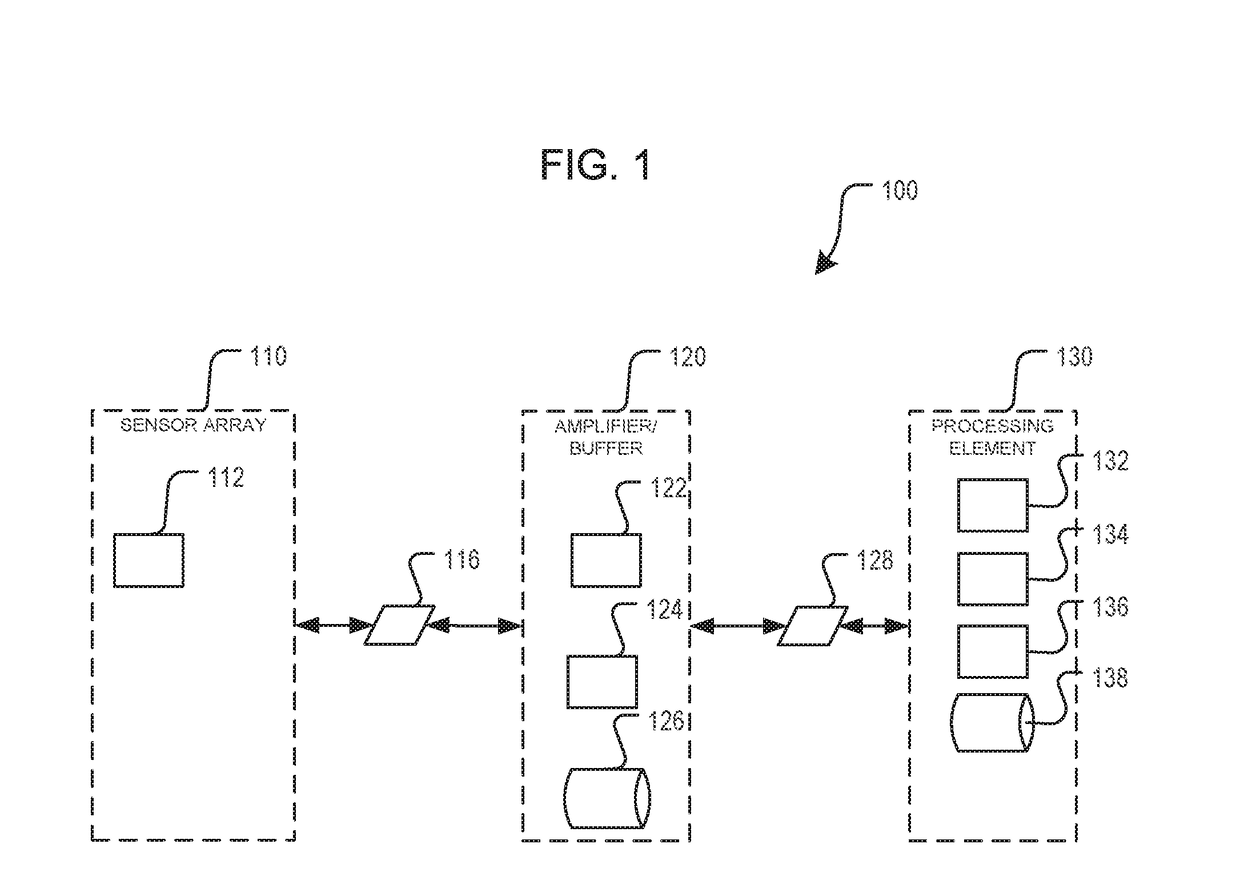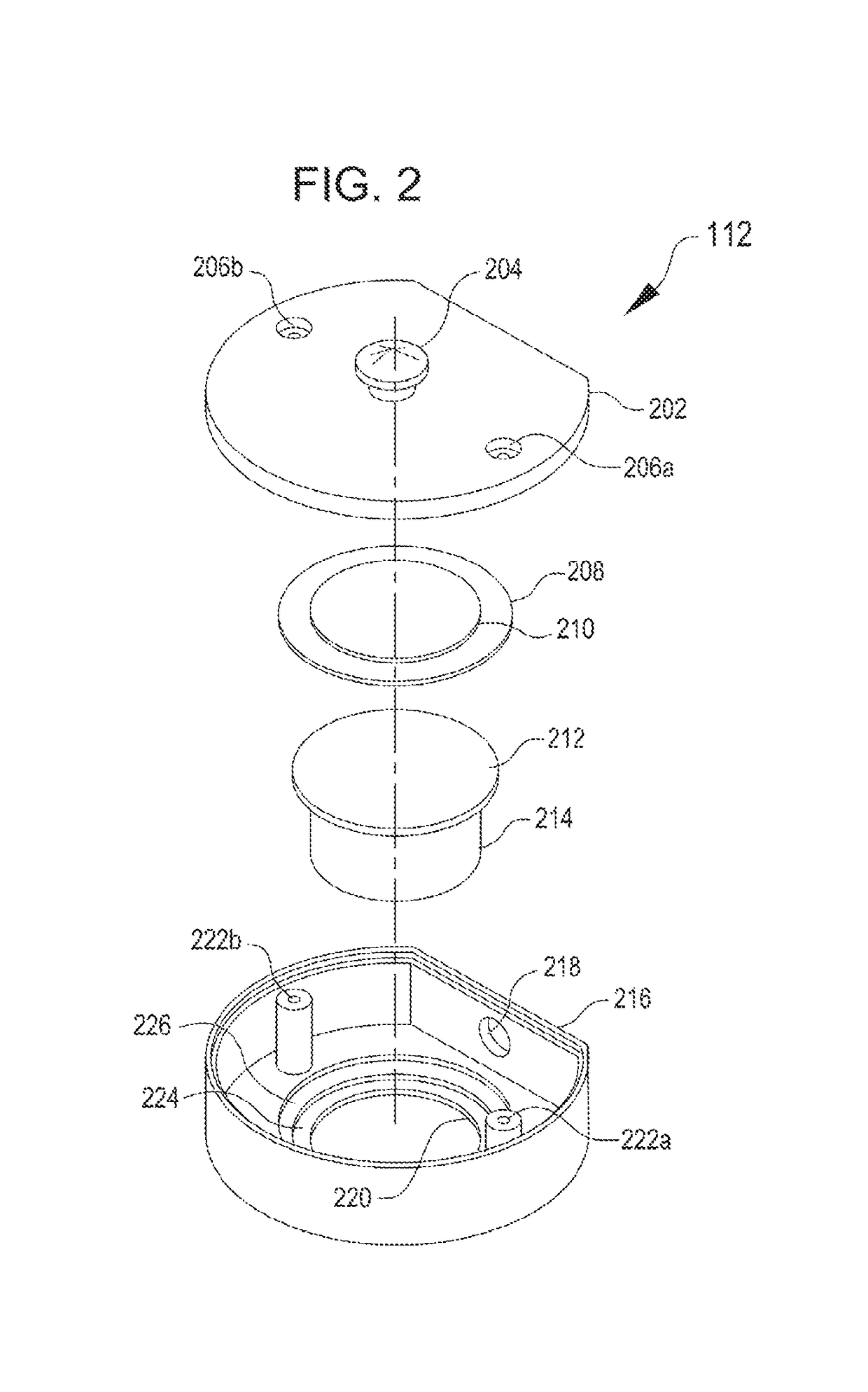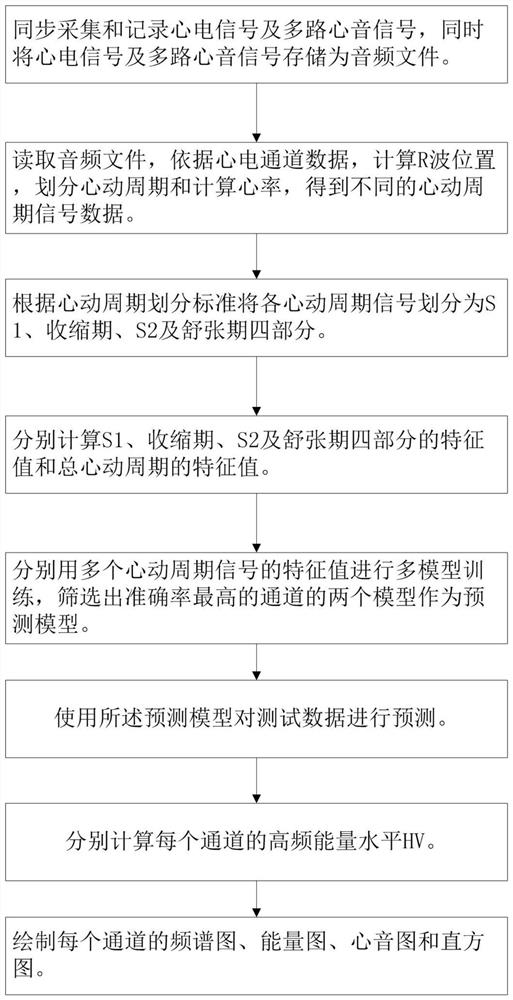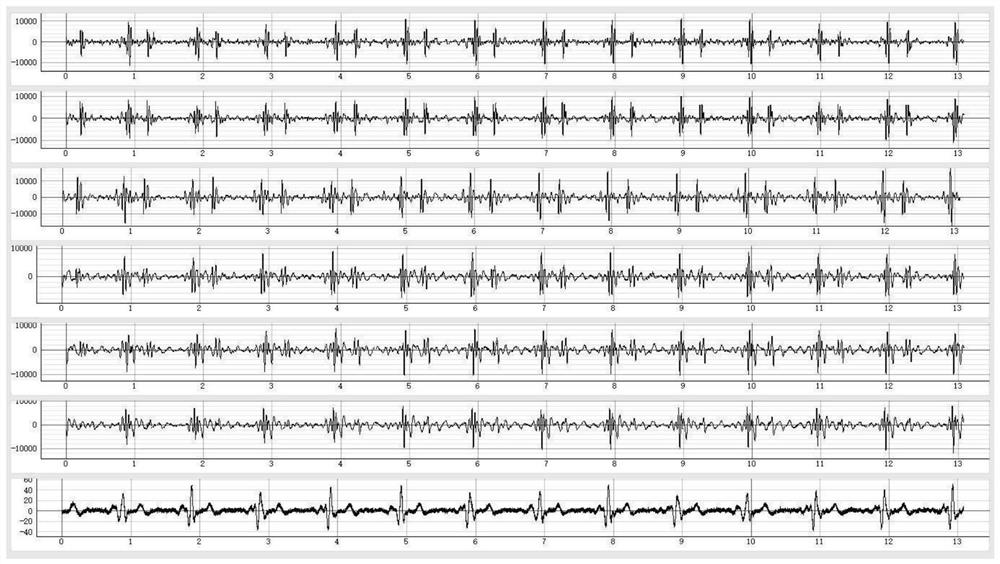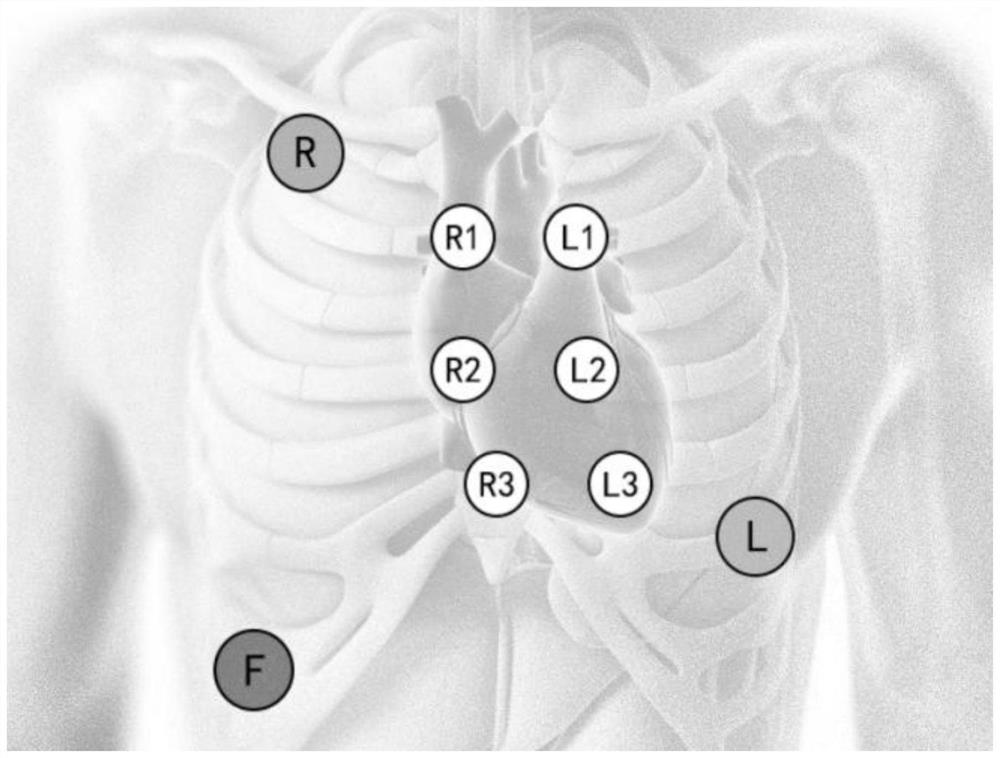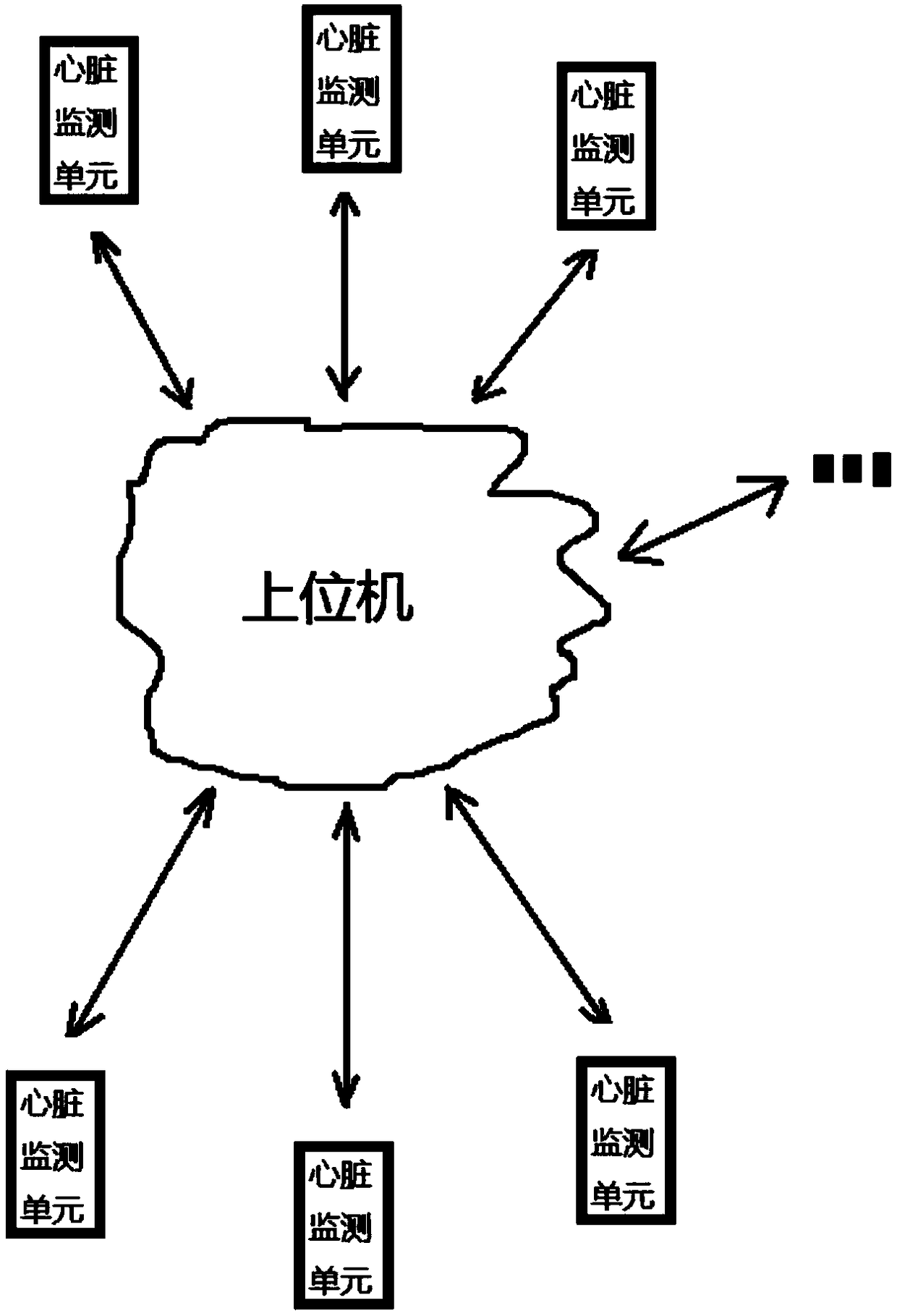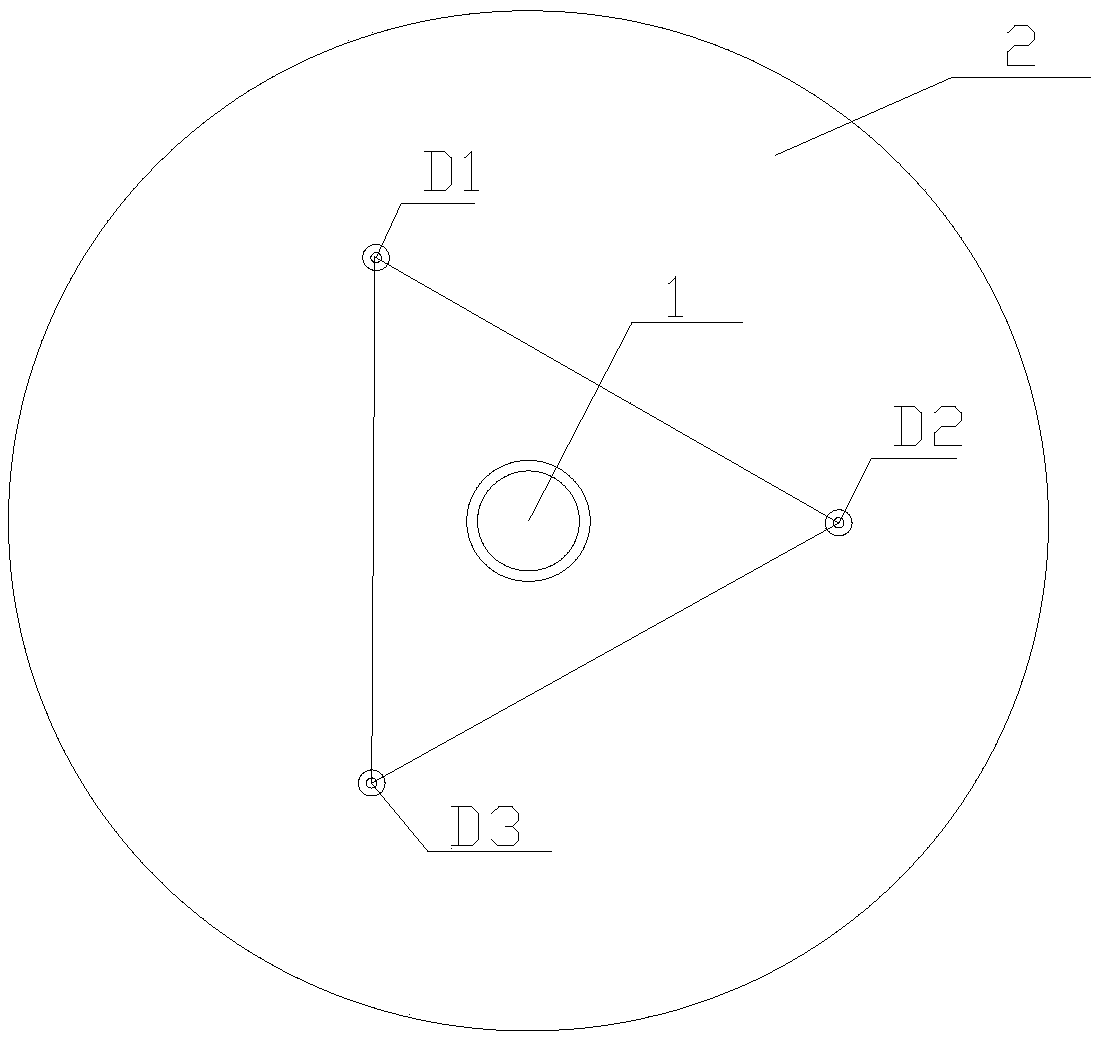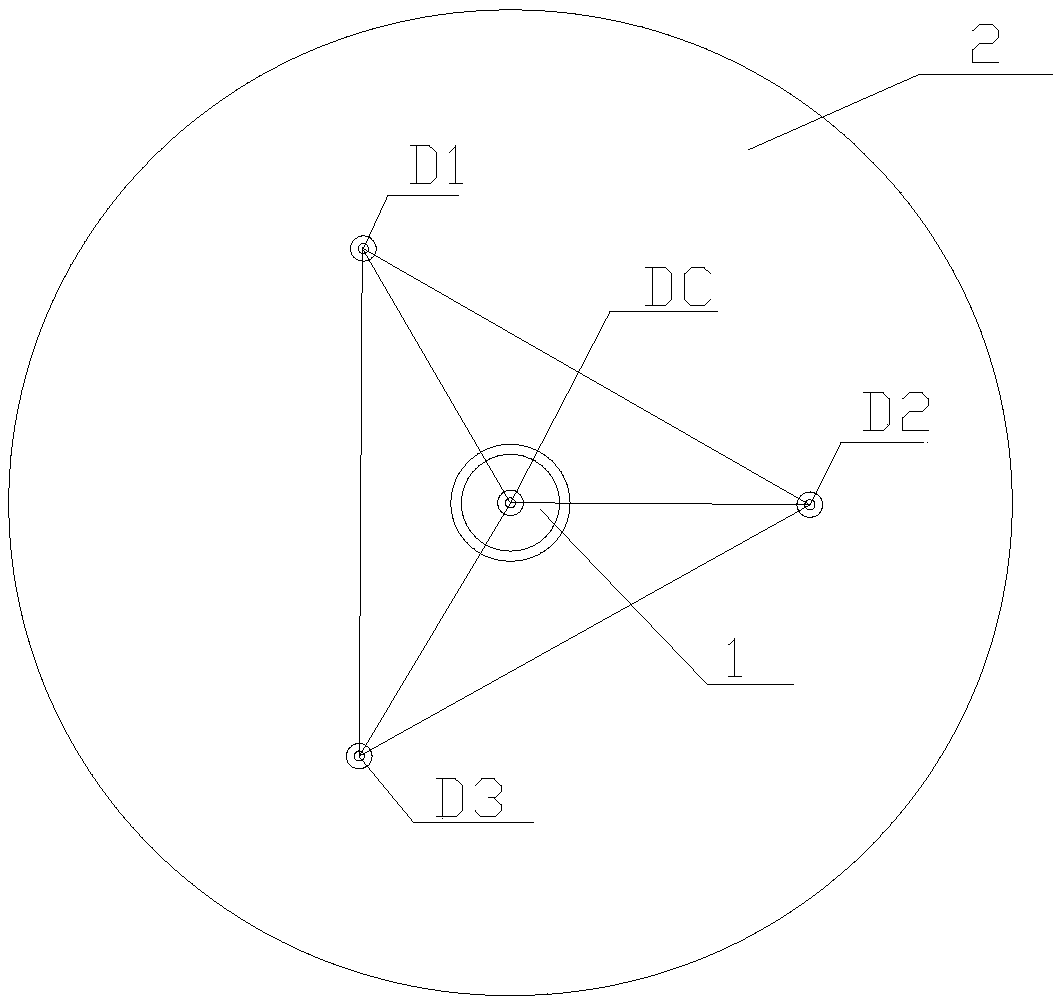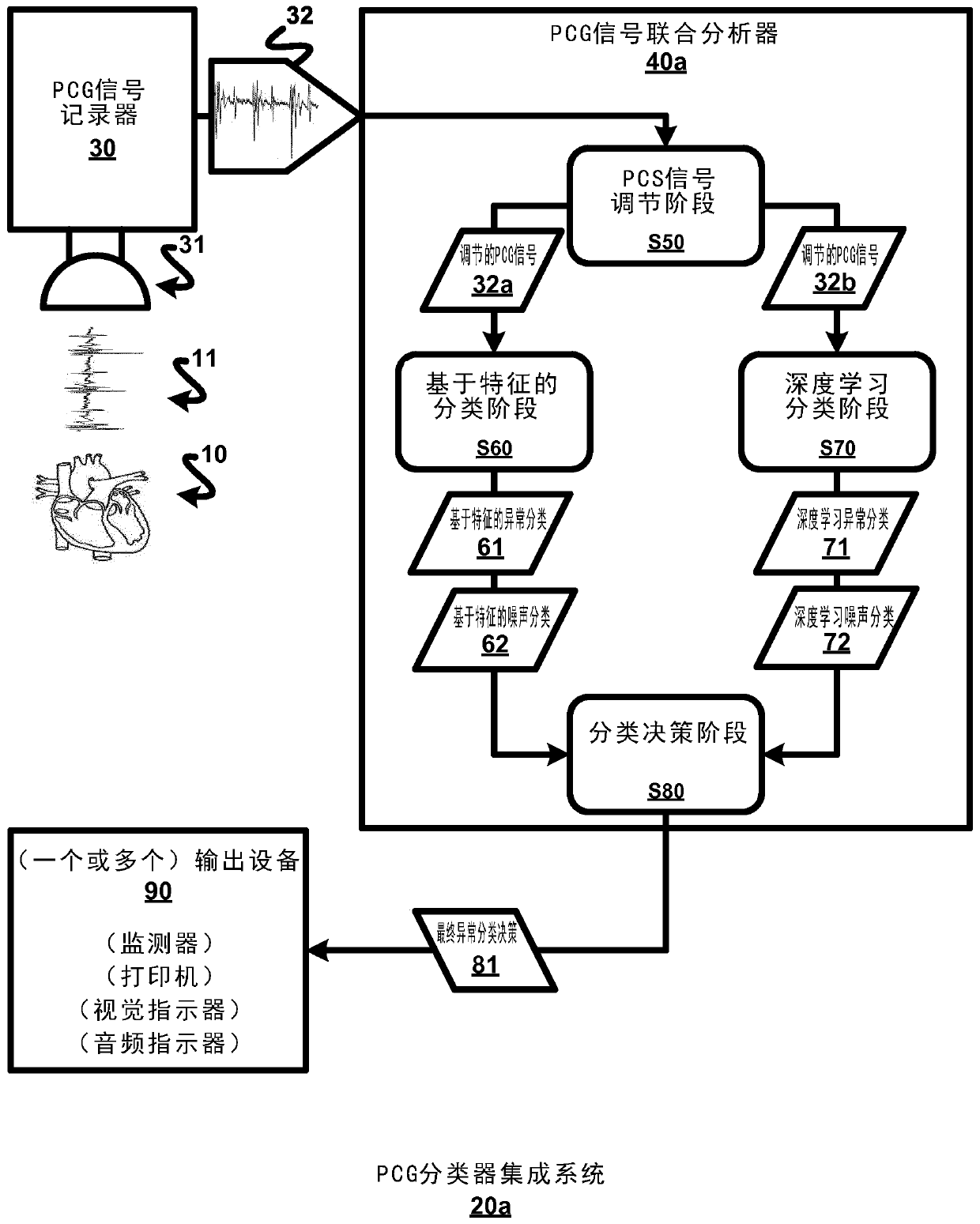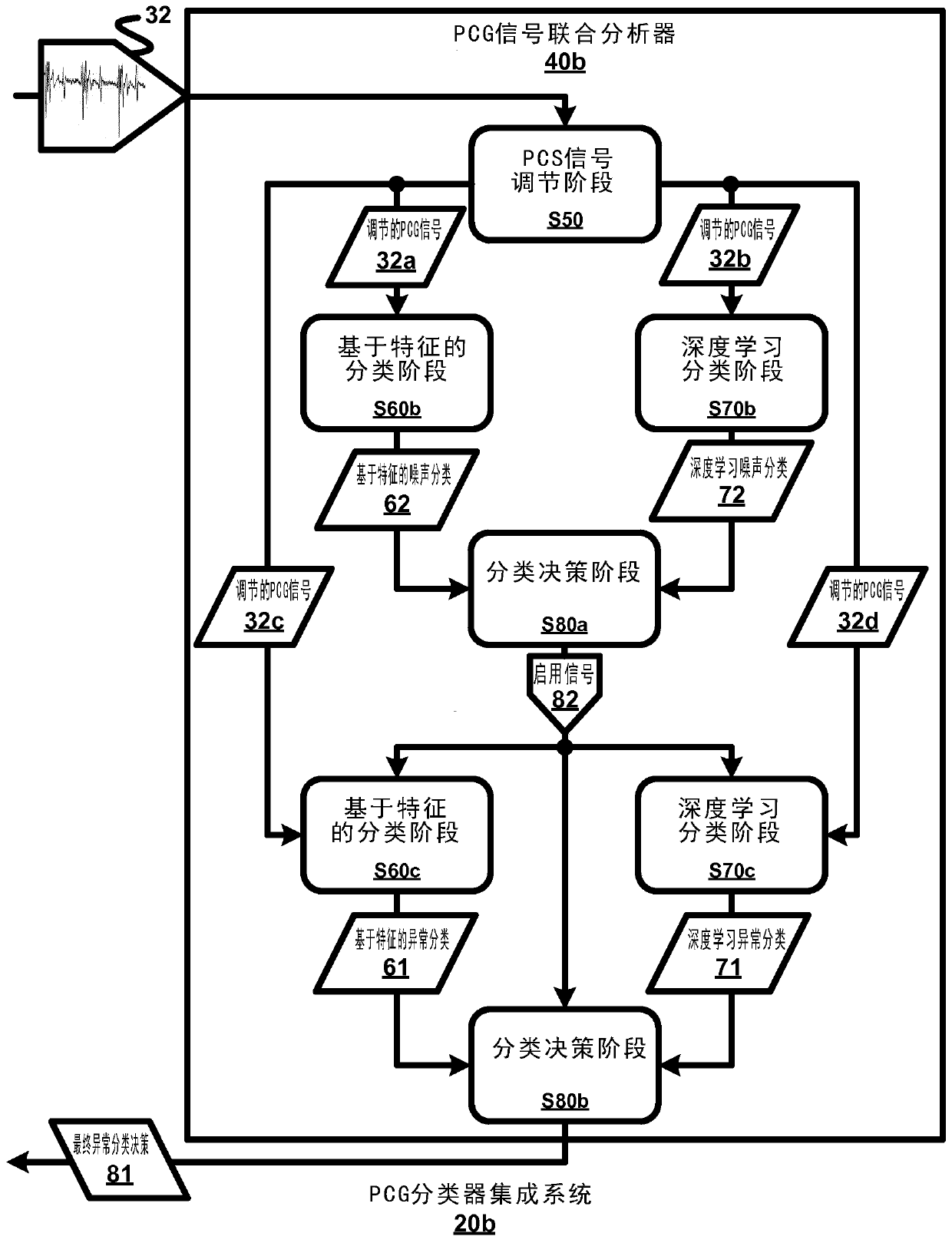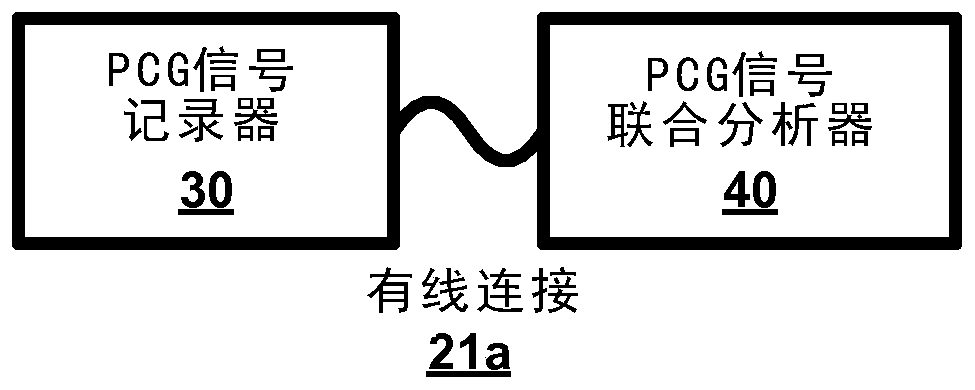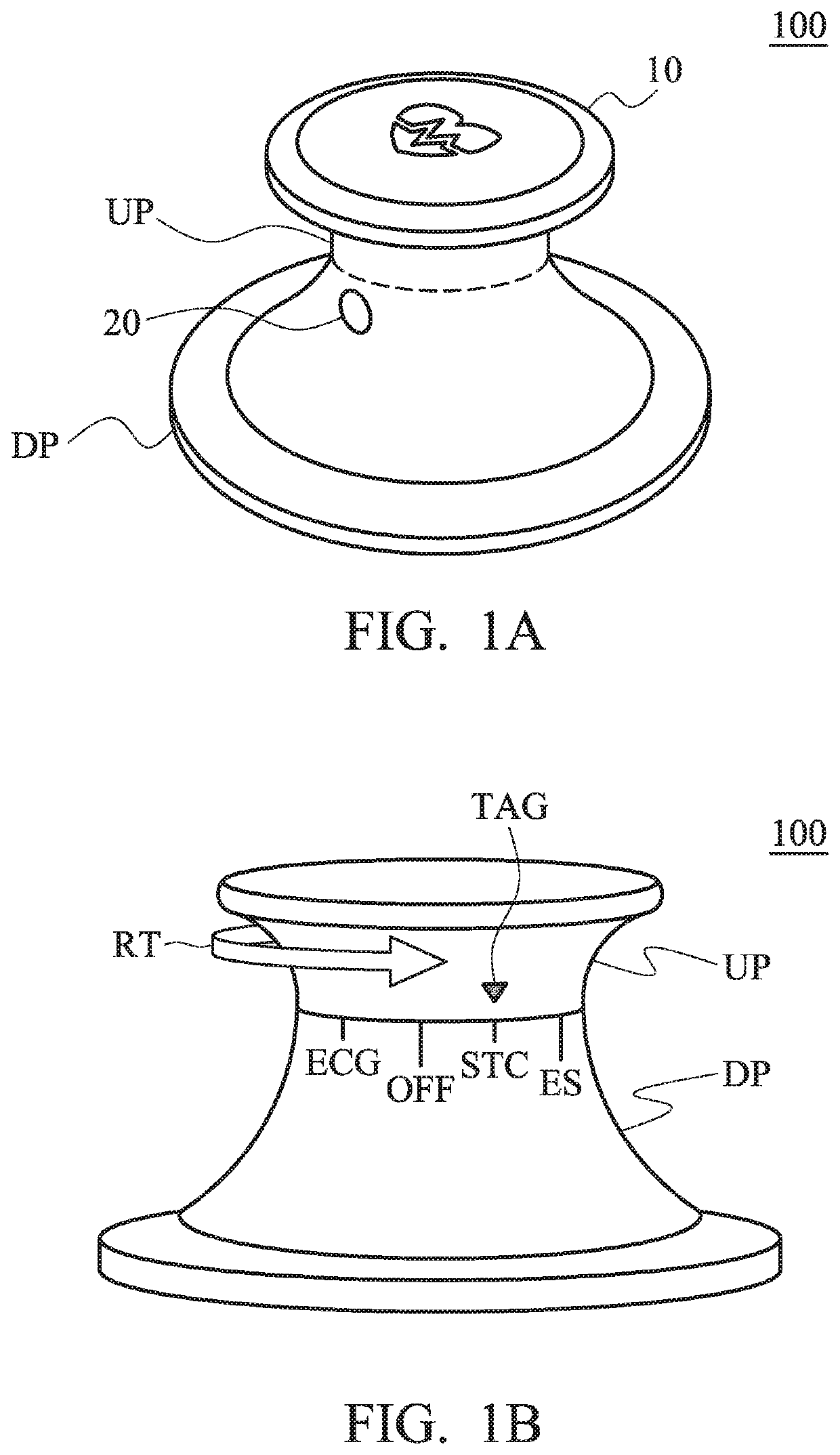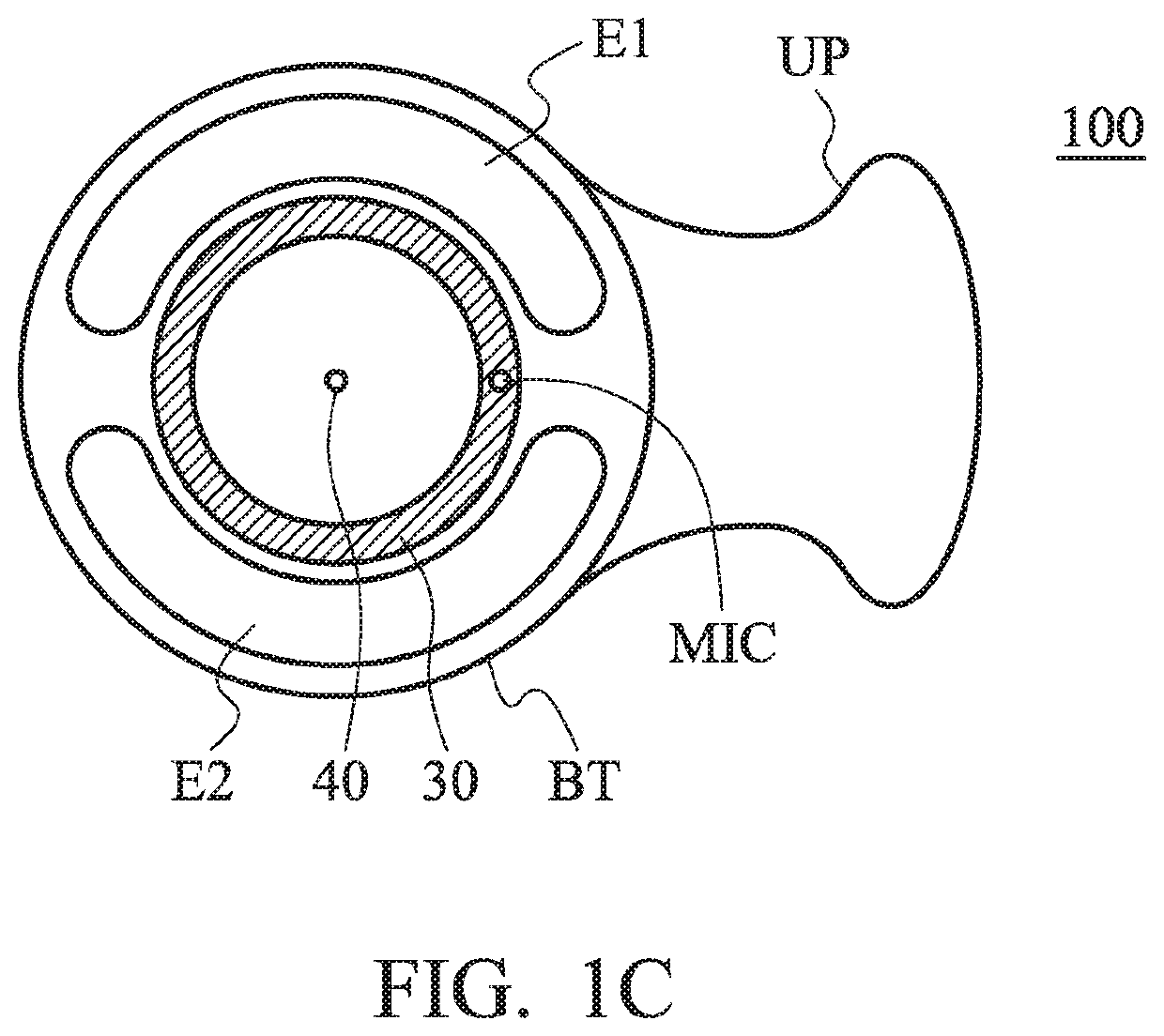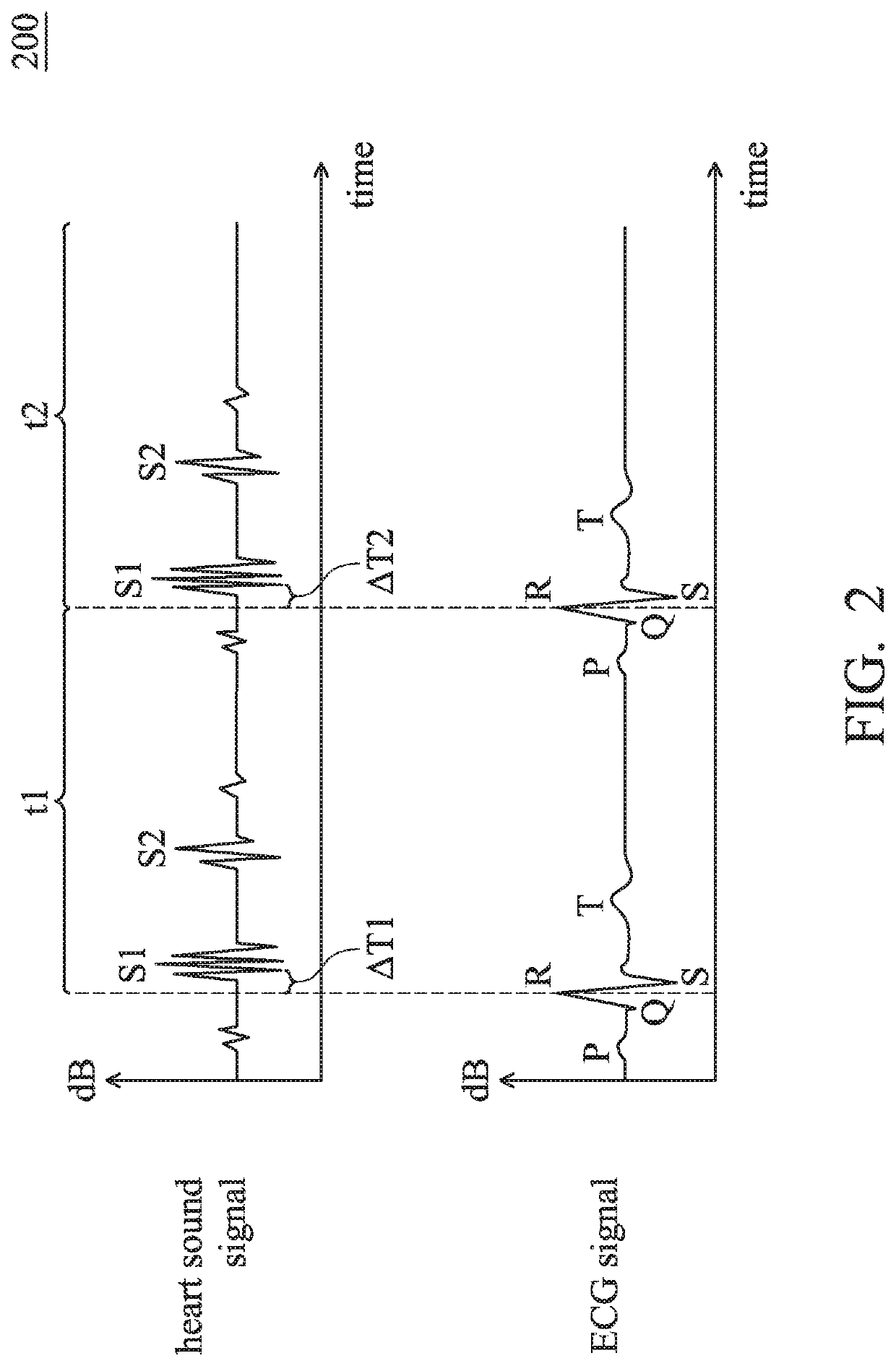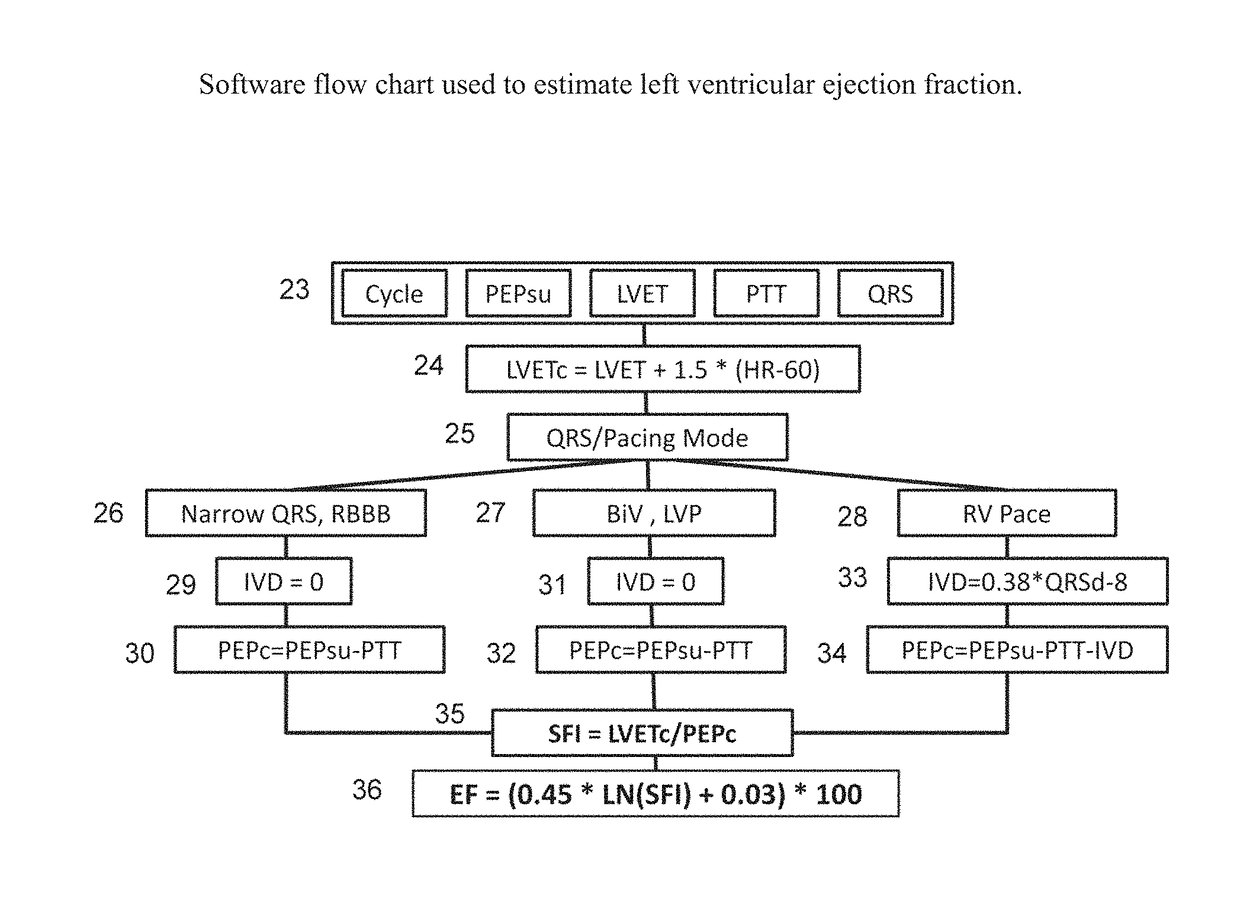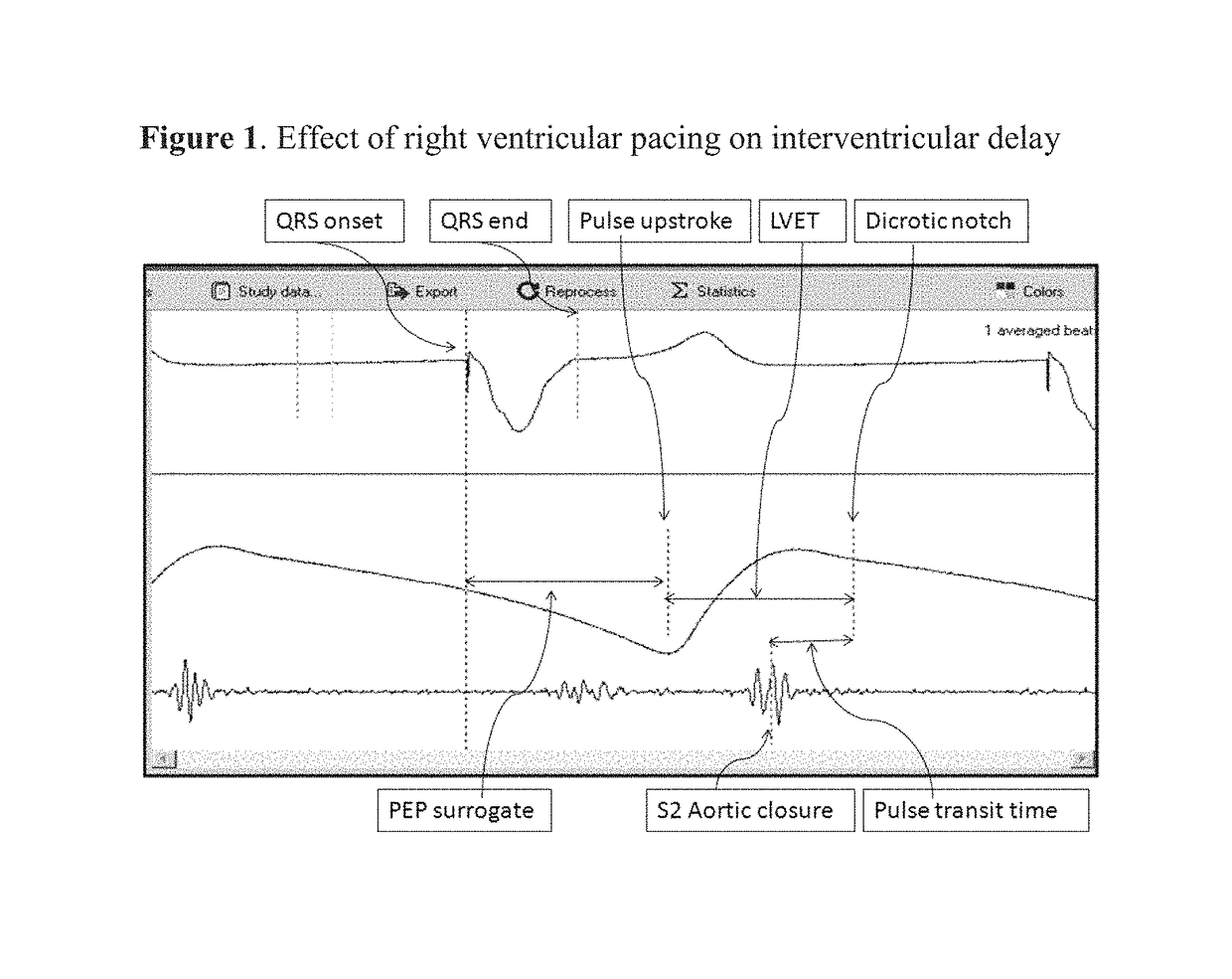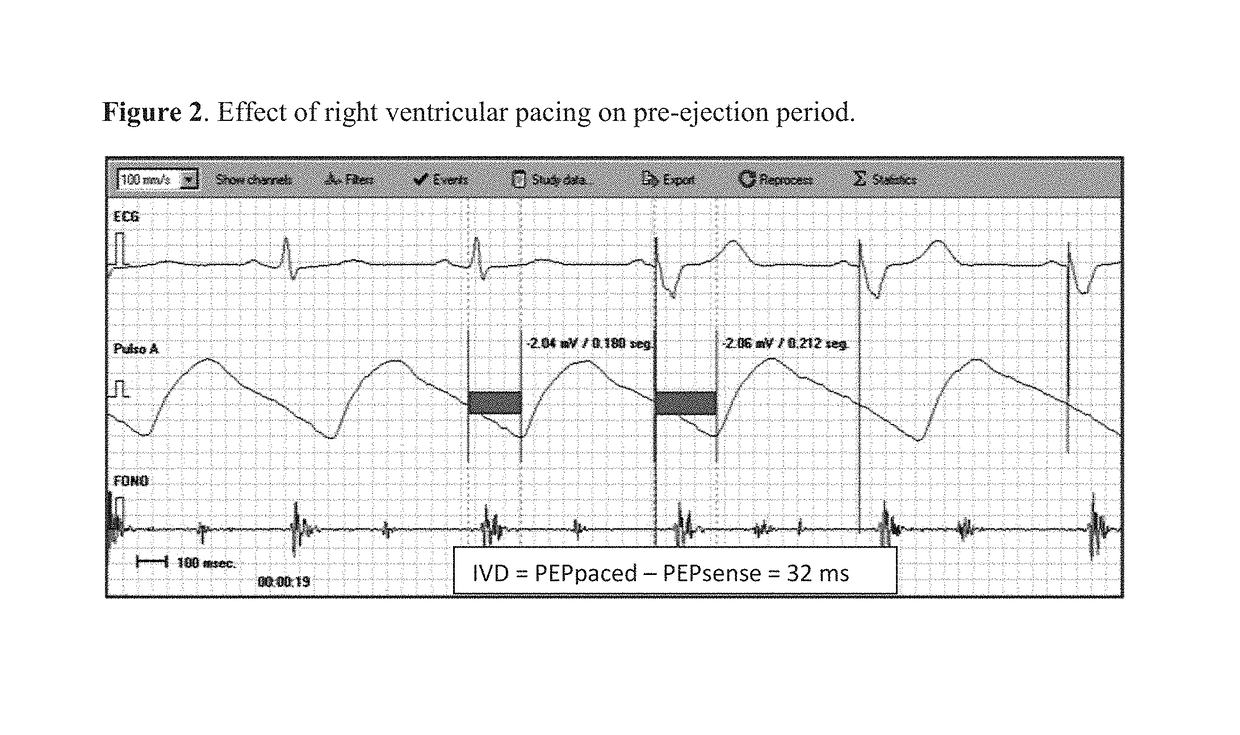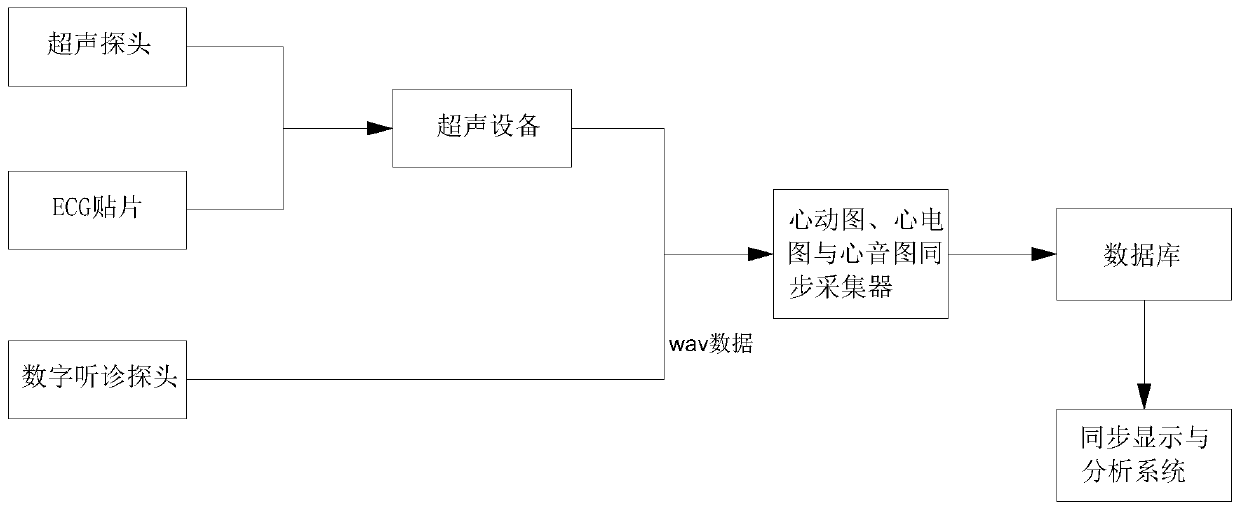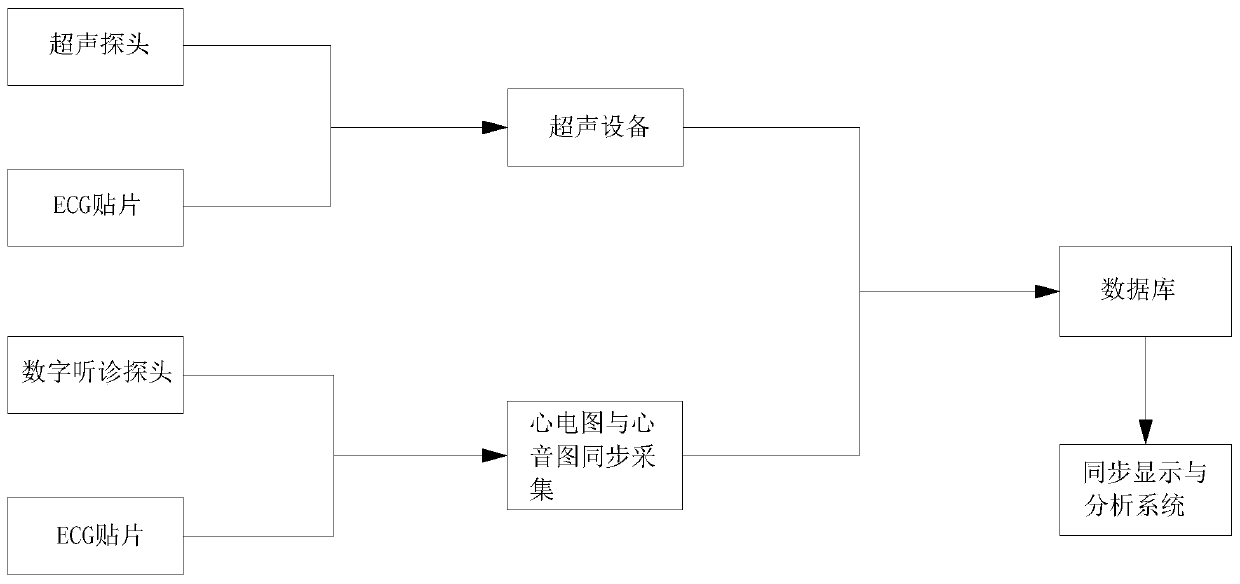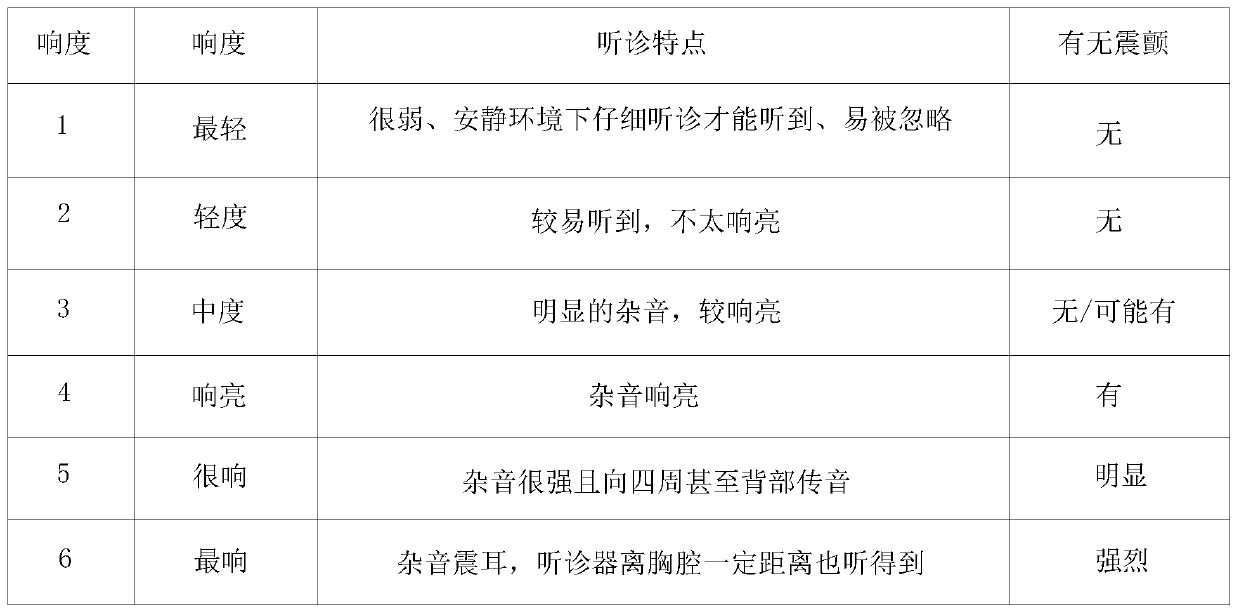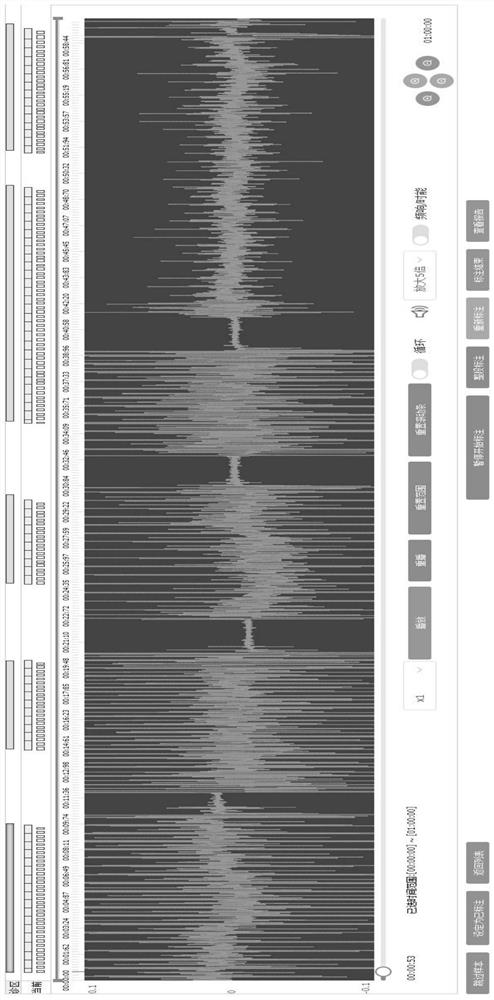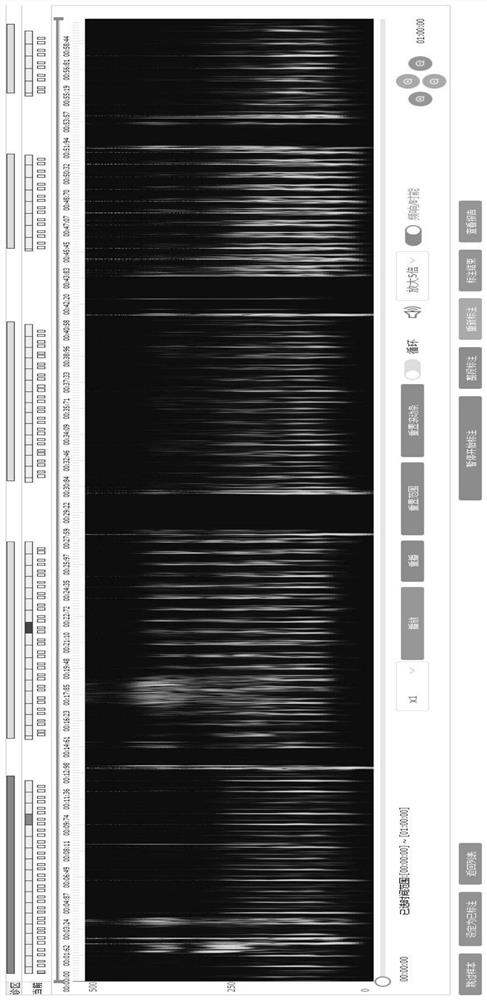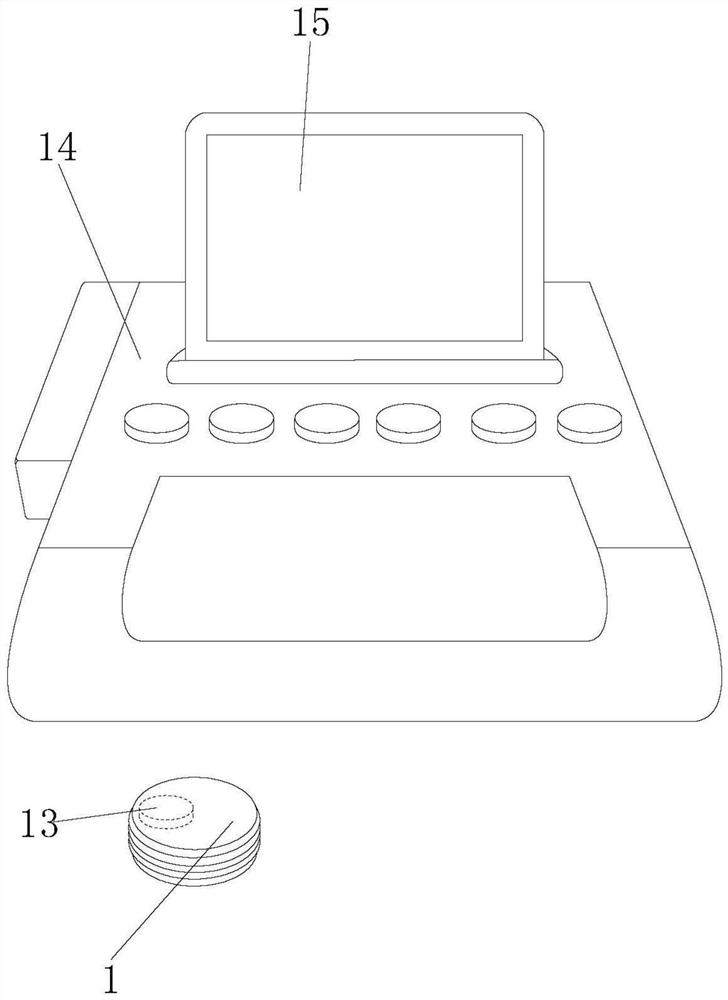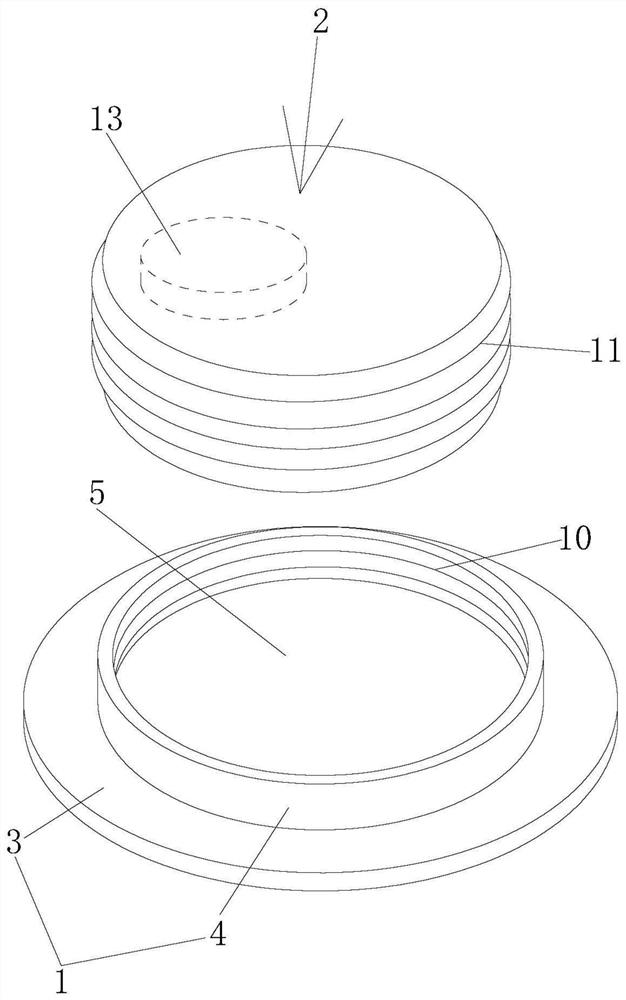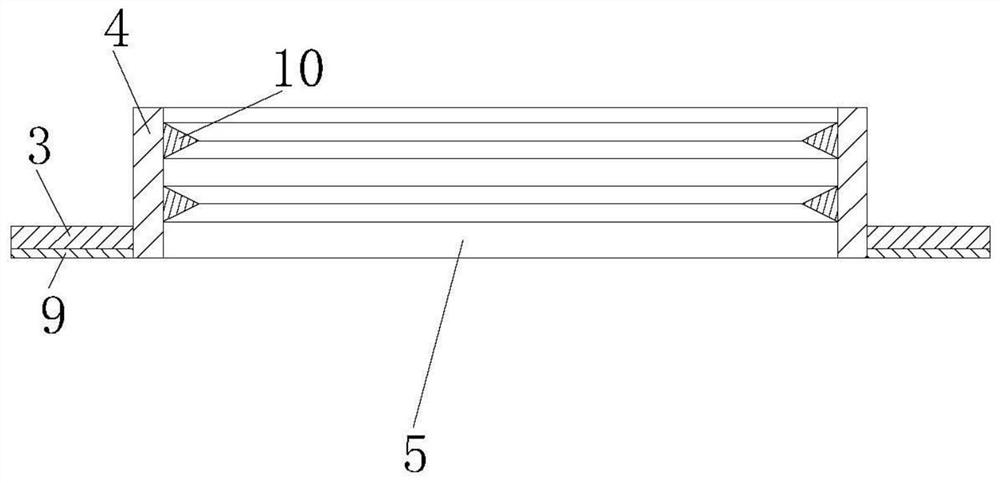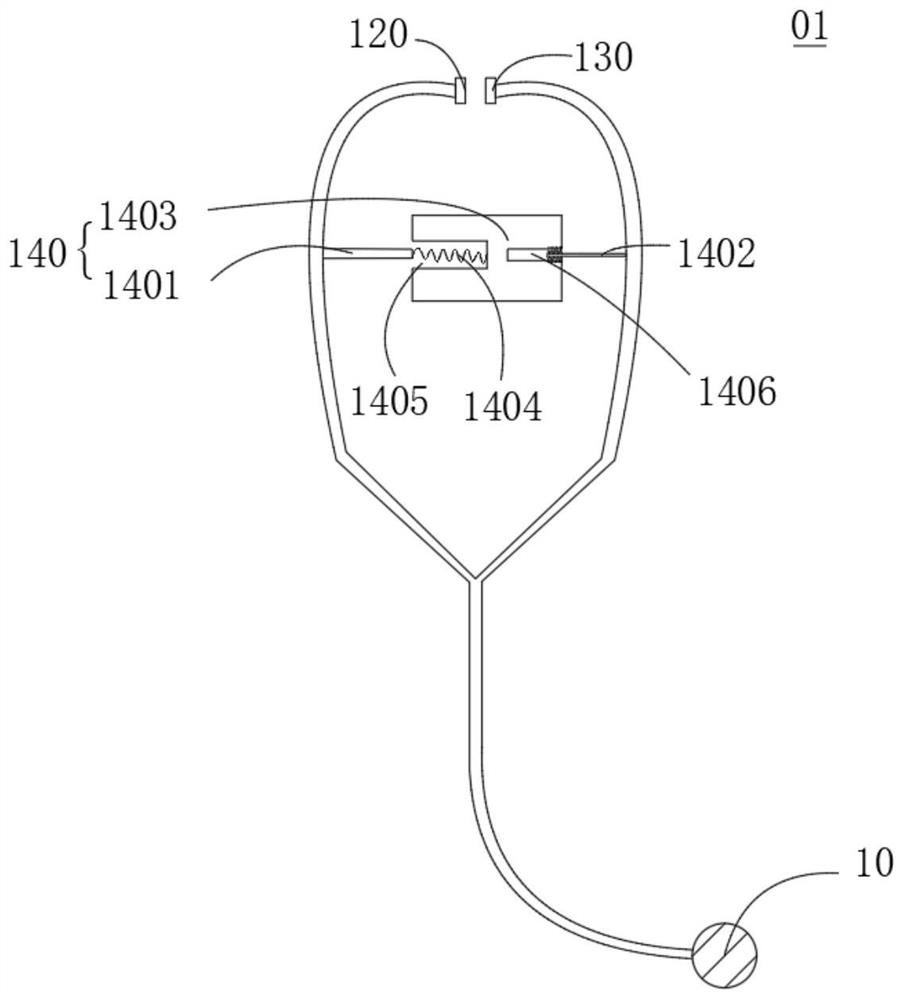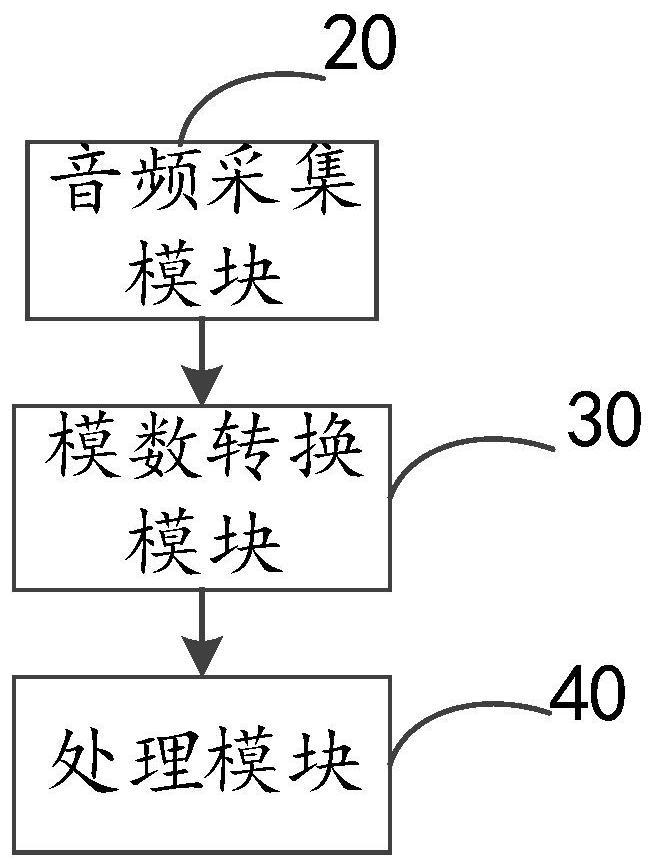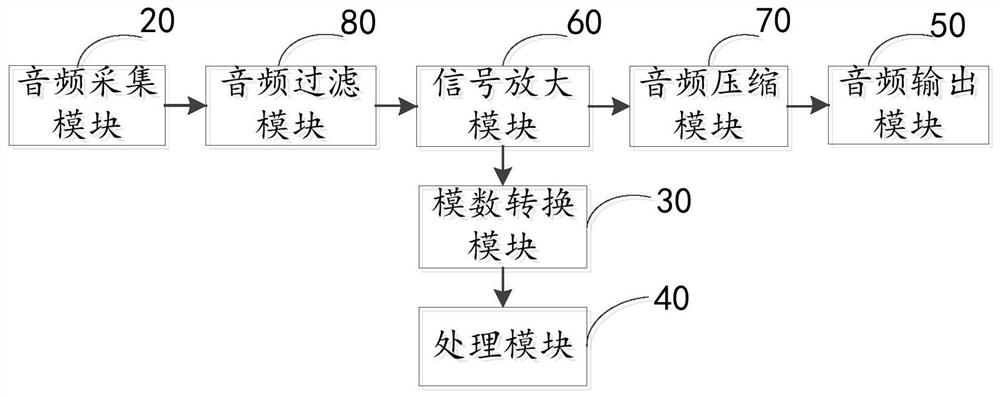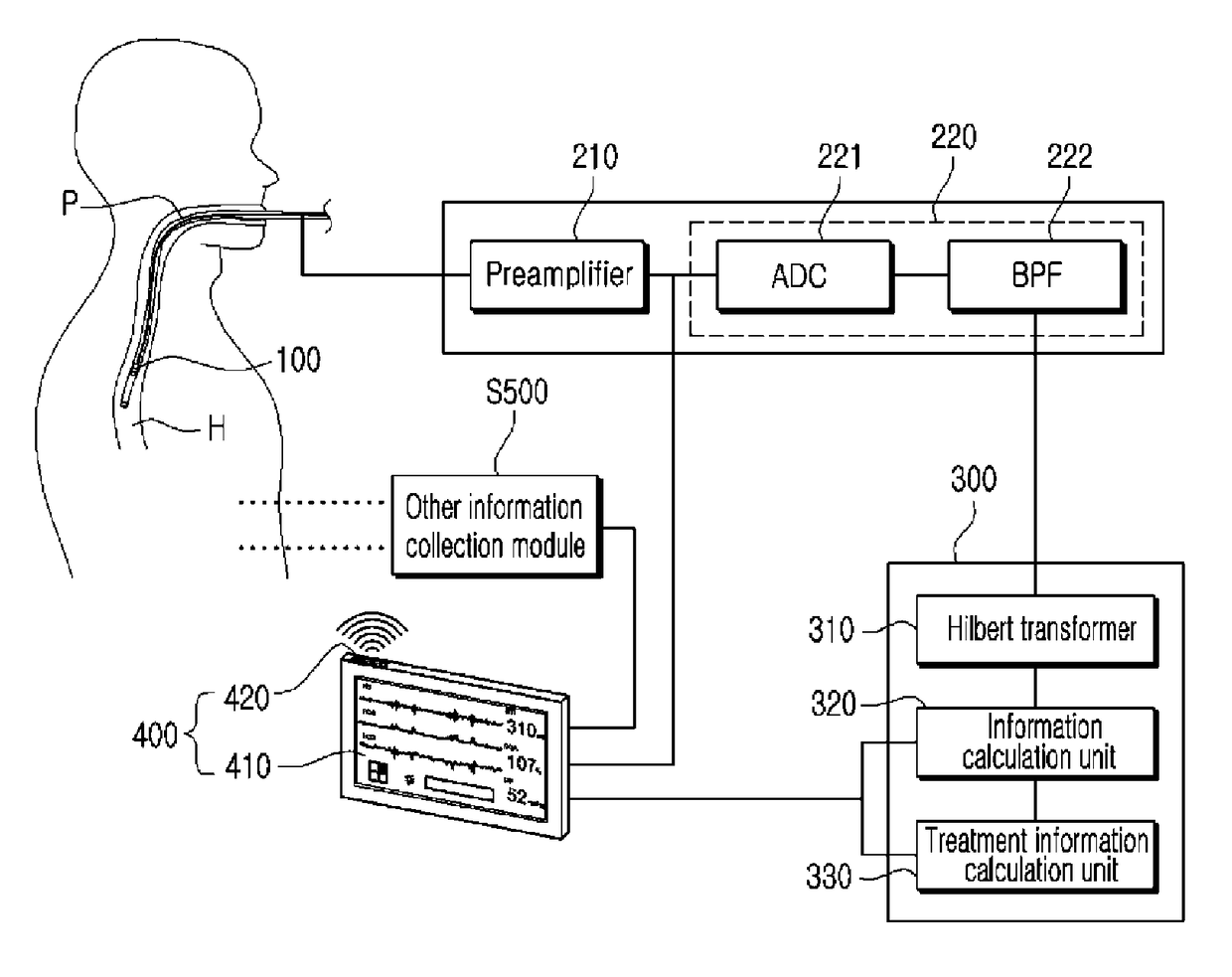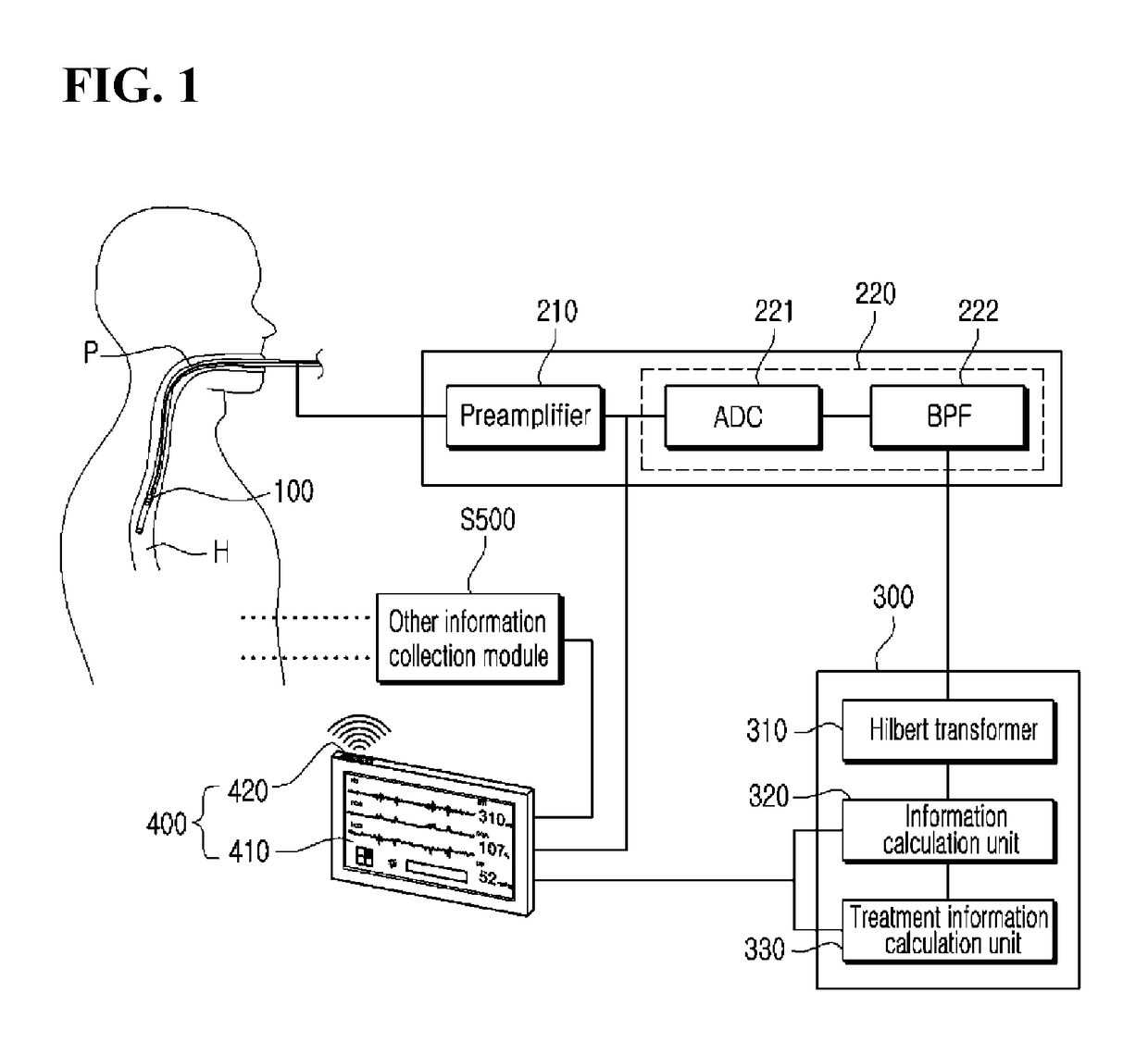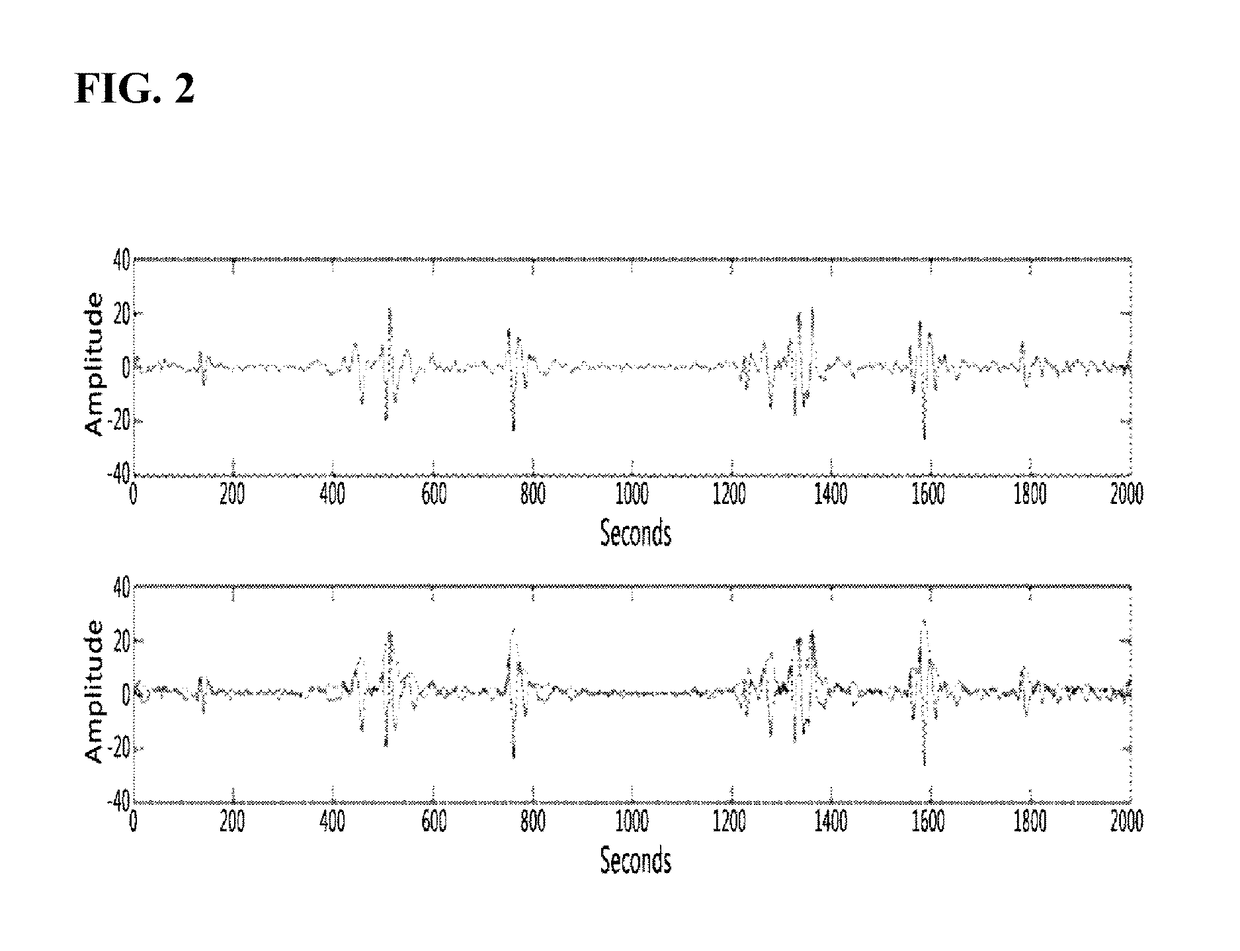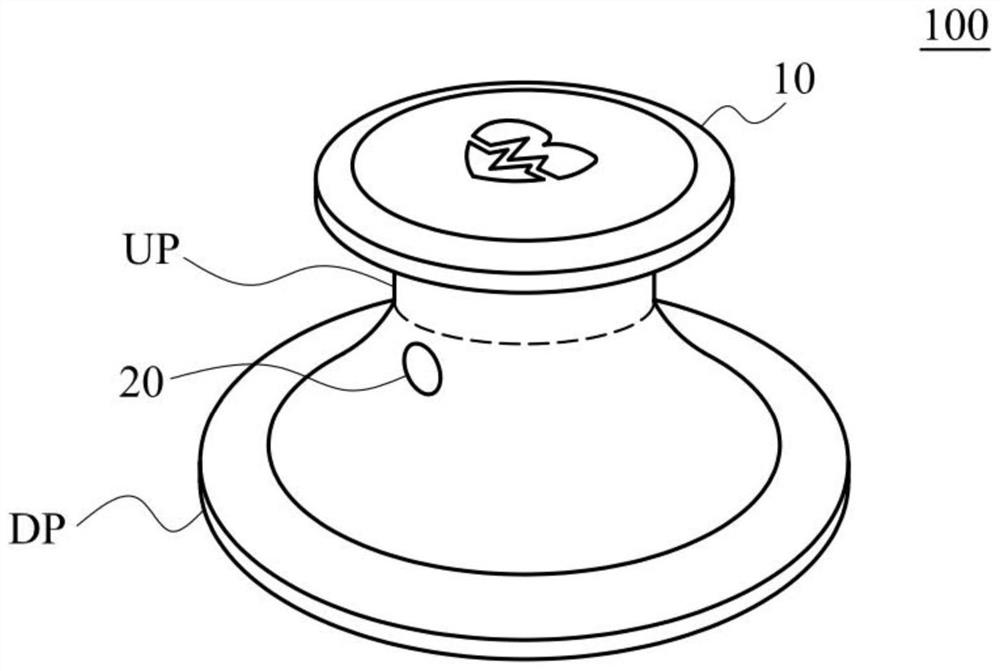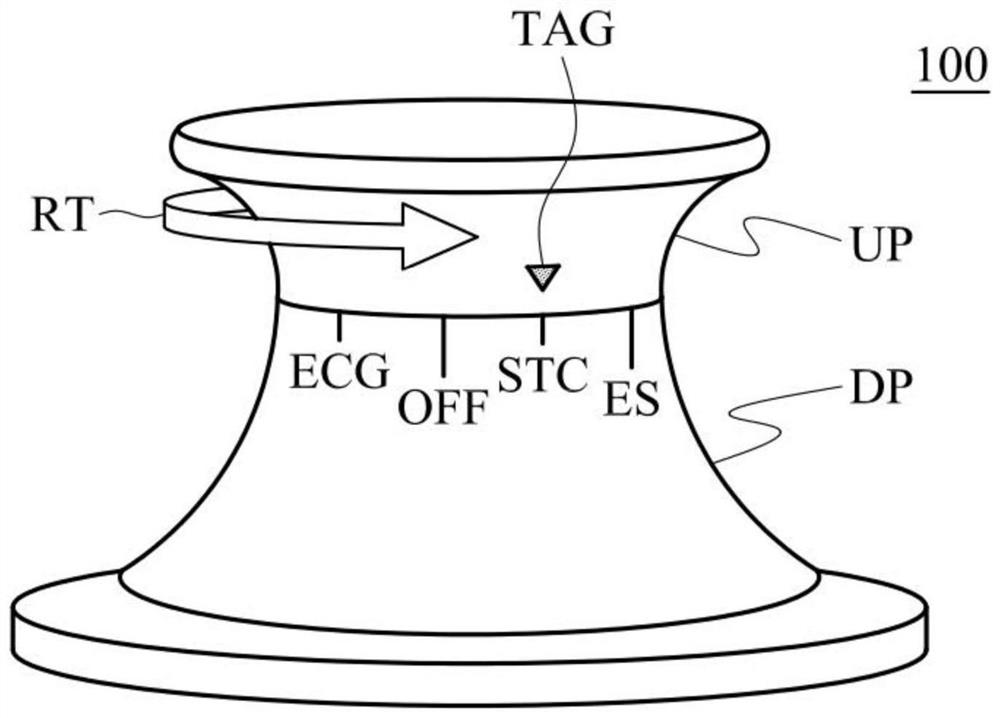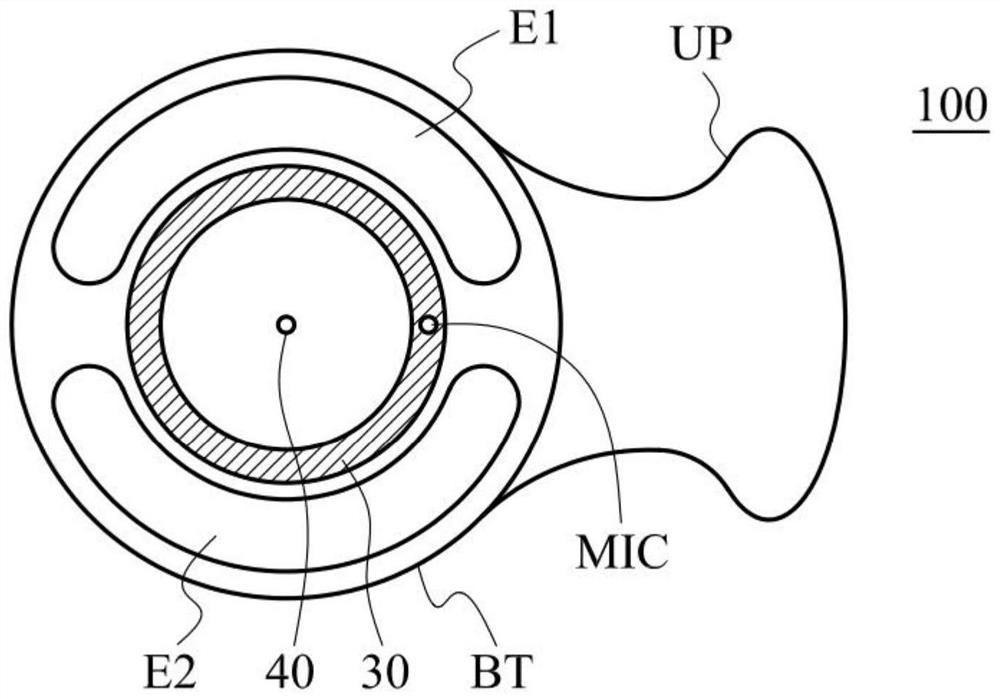Patents
Literature
32 results about "Phonocardiograph" patented technology
Efficacy Topic
Property
Owner
Technical Advancement
Application Domain
Technology Topic
Technology Field Word
Patent Country/Region
Patent Type
Patent Status
Application Year
Inventor
A phonocardiogram (or PCG) is a plot of high-fidelity recording of the sounds and murmurs made by the heart with the help of the machine called the phonocardiograph; thus, phonocardiography is the recording of all the sounds made by the heart during a cardiac cycle. .
System and method for diagnosing and treating long qt syndrome
InactiveUS20080255464A1Easy to identifySimple methodElectrocardiographyAuscultation instrumentsSystoleCardiac cycle
A system for diagnosing Long QT Syndrome (LQTS) derives a QT / QS2 ratio from an electrical systole (QT) and a mechanical systole (QS2) to detect a prolonged QT interval in a patient's cardiac cycle. A processor acquires the systoles from a microphone and chest electrodes, calculates the QT / QS2 ratio, and outputs the result to a display. The processor may compare the QT / QS2 ratio to a threshold value stored in memory for diagnosing LQTS in the patient. A user interface provides for programming, set-up, and customizing the display. A mode selector allows the system to operate alternatively as a phonocardiograph, a 12 lead electrocardiograph, or a machine for diagnosing LQTS. A related method for diagnosing cardiac disorders such as LQTS includes measuring QT and QS2 during a same cardiac cycle, calculating a QT / QS2 ratio, and comparing the result to a threshold value derived from empirical data. The method may include measuring systoles both at rest and during exercise, and may be used for drug efficacy, dosage optimization, and acquired LQTS causality tests.
Owner:INTELLECTUAL ASSET MANAGEMENT
Device for and method of rapid noninvasive measurement of parameters of diastolic function of left ventricle and automated evaluation of the measured profile of left ventricular function at rest and with exercise
ActiveUS7107095B2Information can be usedSafe and convenient modalityEvaluation of blood vesselsAuscultation instrumentsLeft ventricular sizeHeart disease
In a method of noninvasive measurement of parameters of diastolic function of left ventricle and automated evaluation of the measured profile at rest and with exercise, a patient performs an isometric exercise. An external pressure sensor and heart sounds microphone are applied in a non-invasive manner on the thoracic wall to obtain a left ventricular pressure mirroring curve (pressocardiogram) and simultaneously the heart sounds (phonocardiogram). An external unit determines and calculates characteristic diastolic parameters derived from the pressocardiographic curve and phonocardiogram at rest, during and after exercise, converts each said pressocardiogram into a digital waveform in the time domain, and automatically categorizes the mentioned characteristic parameters based on exact categorization criteria for defining several differentialforms of diastolic dysfunction of left ventricle in human beings.
Owner:MANOLAS JAN
Auscultation Training System
An auscultation training system is disclosed comprising a half-body mannequin with speakers providing heart, lung, bowel and bruit sounds in the correct anatomical positions for student training of auscultation with a standard stethoscope. An integrated computer system provides the tools for training and assessing students. Synchronized phonocardiograms and a palpable carotid pulse accompany heart sounds. Sounds can be played and auscultated simultaneously to simulate a live patient, or played and auscultated separately for teaching purposes. The system may be accessed online using a virtual mannequin and stethoscope for viewing and listening to heart, lung, bowel and bruit sounds.
Owner:EXCELLUS TECH
Method and system for processing heart sound signals
The present invention provides a method of processing at least one heart sound signal, and the method comprises the steps of: receiving (11) said at least one heart sound signal; dividing (12) the heart sound signal into a plurality of segments; identifying (13) each attribute information of the segments; annotating (14) each segment with corresponding attribute information; and outputting (15) an annotated phonocardiogram for the at least one heart sound signal. The invention also provides a processing system for implementing the steps of the method as described above.
Owner:KONINK PHILIPS ELECTRONICS NV
Systems for monitoring the cardiovascular system using a heart lung sound
ActiveUS20160120416A1High accuracyLow accuracyElectrocardiographyDigital technique networkHeart soundsLung sound
The present invention relates to A system for monitoring the cardiovascular system using a heart sound, which comprises a heart sound receiving means(100) for receiving a heart sound(HS); DSP (Digital Signal Processor) module(200) for converting the heart sound(HS) received from said heart-sound receiving means(100) to a digital signal; and an arithmetic section(300) for calculating phonocardiogram(PCG) from the digital signal converted in the DSP module (200) and calculating information related to a preload or information related to a cardiac contractile force or information related to a respiratory change.
Owner:THE ASAN FOUND
Positioning analysis method for electrocardiogram and phonocardiogram based on cardiac sound characteristics
InactiveCN108324265AReduce dependenceSuitable for home monitoring of heart statusStethoscopeDiagnostic recording/measuringT waveCardiac cycle
Provided is a positioning analysis method for electrocardiogram and phonocardiogram based on cardiac sound characteristics. The method comprises following steps: synchronously acquiring and synchronously recording electrocardiogram and phonocardiogram, and using the same timeline for the electrocardiogram and phonocardiogram; identifying cardiac sound characteristics in the phonocardiogram, the cardiac sound characteristics comprising at least S1, S2 and a cardiac cycle, and marking the timeline with time tS1 of the S1, the time tS2 of the S2, and the cardiac cycle; for the electrocardiogram,carrying out following operations within each cardiac cycle: determining the period from S1 to S2 and searching for cardiac T waves in the period and determining the period from the S2 to the end moment of the cardiac cycle and searching the cardiac R waves and P waves within the period; if any of the T waves, the R waves and the P waves is missing, then outputting the cardiac abnormality alarm. The invention has the advantages of being able to initially identify the function of the heart by using the matching relationship between the electrocardiographic characteristics and the phonocardiogram characteristics, and is suitable for the advantages of home cardiac monitoring.
Owner:河南善仁医疗科技有限公司
Electrocardiogram phonocardiogram analysis method
InactiveCN108324268AReduce dependenceSuitable for home monitoring of heart statusStethoscopeDiagnostic recording/measuringCARDIAC ANOMALYT wave
The invention provides an electrocardiogram phonocardiogram analysis method. The method comprises following steps: synchronously acquiring and synchronously recording electrocardiogram and phonocardiogram, and using the same timeline for the electrocardiogram and phonocardiogram; determining whether the P wave, R wave and T wave in the electrocardiogram can be identified; if the P wave, the R waveand the T wave in the electrocardiogram can be identified, the phonocardiogram corresponding to the RT interval is intercepted, and as the first waveform to be filtered, the phonocardiogram corresponding to the TP interval is intercepted as the second waveform to be filtered; if there is no pulse waveform in the first wave to be filtered, it is considered that S1 is missing and the heart is abnormal; if there is no pulse waveform in the second wave to be filtered, it is considered that S2 is missing and the heart is abnormal; if the electrocardio feature can not recognized in the electrocardiogram, the S1 waveform and the S2 waveform are identified from the phonocardiogram. If so, each S1 waveform and each S2 waveform are extracted; otherwise, abnormal heart condition signals are output.The invention has the advantages of being able to initially identify the function of the heart by using the matching relationship between the electrocardiographic characteristics and the heart sound characteristics, and is suitable for the advantages of home cardiac monitoring.
Owner:河南善仁医疗科技有限公司
Method for cardiac sound waveform data processing and graph displaying and auscultation system
ActiveCN106037792AAccurate and Automatic IdentificationExtract heart rate in real timeImage enhancementImage analysisGraphicsUser input
The invention discloses a method for cardiac sound waveform data processing and graph displaying and an auscultation system. With a cardiac sound waveform data processing method, characteristics of a first cardiac sound and a second cardiac sound can be identified accurately and automatically without the need to input any parameter by a user and a heart rate is extracted in real time. With a cardiac sound graph displaying method, an original cardiac sound graph and a similar electrocardiogram after data processing are displayed on a same graph simultaneously; and up-down comparison of characteristic points is realized conveniently by sharing a same timer shaft. Therefore, the original fluctuation situation of the original cardiac sound graph can be observed and the cardiac sound characteristics can be observed clearly in the similar electrocardiogram after data processing, so that a visualized effect of the cardiac sound graph is realized and a clear cardiac sound graph can be obtained and thus the diagnosis becomes accurate. With an electronic auscultation system, a heart rate can be record and extracted in real time and a clear cardiac sound graph can be displayed.
Owner:上海康情信息科技有限公司
Heart sound sensor position identifying and correcting method for multi-channel heart sounds
ActiveCN108784679AReduce dependenceSuitable for home monitoring of heart statusAuscultation instrumentsDiagnostic recording/measuringElectricityAuscultation
The invention provides a heart sound sensor position identifying and correcting method for multi-channel heart sounds. The method comprises the following steps that an electrocardiograms and multi-channel phonocardiograms are synchronously collected and recorded, wherein the multi-channel phonocardiograms correspond to auscultation areas respectively; heart electricity characteristics of each cardiac cycle are identified, and according to the heart electricity characteristics, the heart sound characteristics of each channel of phonocardiogram are correspondingly found; the S1 intensities and the S2 intensities of the heart sound auscultation areas are obtained respectively, and for the same cardiac cycle, whether the phonocardiograms accurately correspond to the auscultation areas thereofor not is judged according to the S1 intensities and the S2 intensities. The heart sound sensor position identifying and correcting method has the advantages that heart electricity signals and multi-channel heat sound signals can be monitored at the same time, the heart function is preliminarily identified, and the method is suitable for home monitoring of the heart state.
Owner:河南善仁医疗科技有限公司
Device and Method for Assessment of Left Ventricular Ejection Fraction and Other Parameters of Cardiac Performance
The invention consists of a device and method for the prediction of left ventricular ejection fraction (EF) and other cardiac hemodynamic parameters using systolic time intervals in patients with narrow QRS, right bundle branch block, left bundle branch block, right ventricular and / or left ventricular cardiac pacing and in the presence of arrhythmia, such as atrial fibrillation. The device has three inputs: the ECG, a peripheral pulse and a phonocardiogram. Timing parameters are obtained from these signals to calculate a systolic function index, used for the prediction of ejection fraction. Given the invention's features it would be now possible to assess cardiac performance and specifically left ventricular ejection fraction in ambulatory patients as well as during invasive procedures such as the implant of cardiac rhythm management devices. Also, an implantable embodiment of the invention would allow constant monitoring of cardiac performance, parameter adjustment of cardiac devices and automatic drug infusion.
Owner:CHIRIFE RAUL
Vegetative nerve diagnosis system based on heart sound
InactiveCN1426759AHigh activityImprove quality of lifeDiagnostic recording/measuringSensorsRR intervalDiagnostic system
A vegetative nerve diagnosing system based on heart sounds features that the heart sounds are collected and then processed by a computer to analyze the particular parameters about the variability of heart rhythm through a cardiophonogram. The physiologic or pathologic state of a user can be easily acquired by arranging a microphone or a stethoscope on the user's body. Its advantage is high speed.
Owner:LEADTEK +1
Household cardiac monitoring system based on electrocardio and cardiac sound analysis
InactiveCN108324266ATimely medical treatmentStethoscopeDiagnostic recording/measuringCardiac statusT wave
Provided is a household cardiac monitoring system based on electrocardio and cardiac sound analysis. The system comprises a portable electrocardio and cardiac sound meter and its disposable application; the disposable application comprises a paster with a viscose layer; the paster is provided with a cardiac sound probe and multiple electrocardio electrodes; the cardiac sound probe and the electrocardio electrodes are exposed from the viscose layer; electrocardiogram and phonocardiogram are input to the electrocardio and cardiac sound meter; a same timeline is used for the real-time synchronously acquired electrocardiogram and phonocardiogram and the user's heart rate is obtained from the electrocardiogram; identifying electrocardio characteristics in the electrocardiogram and locating phonocardiogram using the electrocardio characteristics and finding cardiac sound characteristics; when R wave and first cardiac sound S1 do not appear correspondingly , or T wave and second cardiac soundS2 do not appear correspondingly, or the first cardiac sound S1 is abnormal or the second cardiac sound S2 is abnormal, then outputting cardiac abnormality alarm. The invention has the advantages ofbeing able to simultaneously monitor the electrocardio and the cardiac sound signals, and locating the cardiac sound characteristics by the electrocardiographic characteristics, thereby facilitating the user to monitor the heart state at home.
Owner:河南善仁医疗科技有限公司
Low cost fetal phonocardiogram
A fetal phonocardiogram system featuring an array of acoustic sensors designed to be temporarily affixed to a pregnant patient to convert the vibrations associated with a fetal heartbeat and / or fetal movement into a signal. The signal can be amplified and transferred to a processing element for filtering non-fetal sounds in order to resolve the fetal heartbeat. The filtered signal can be used in conjunction with an array of multiple acoustic sensors to locate a fetal position relative to the array.
Owner:KHALIFA UNIV OF SCI & TECH
Cardiac souffle identification method based on multiple paths of heart sound
PendingCN108420453AReduce dependenceSuitable for home monitoring of heart statusStethoscopeDiagnostic recording/measuringSystolic murmurCardiac cycle
A cardiac souffle identification method based on multiple paths of heart sound comprises the steps that an electrocardiogram and multi paths of phonocardiograms are acquired and recorded synchronously, and electrocardio characteristics of each cardiac cycle are respectively identified; heart sound characteristics of each path of phonocardiograms are correspondingly found according to each electrocardio characteristic, and M1, T1, A2 and P2 of all phonocardiograms are marked; systolic murmur and its transferring direction are identified between T1 and A2. The cardiac souffle identification method has the advantages of preliminarily judging the heart sound transferring direction and transferring range and being suitable for heart state monitoring at home.
Owner:河南善仁医疗科技有限公司
Multipath heart sound based heart sound sensor position error-correcting method
ActiveCN108378843AReduce dependenceSuitable for home monitoring of heart statusStethoscopeDiagnostic recording/measuringBase heartMedicine
The invention discloses a multipath heart sound based heart sound sensor position error-correcting method. The multipath heart sound based heart sound sensor position error-correcting method comprisesthe following steps of: synchronously collecting and synchronously recording an electrocardiograph and multipath phonocardiogram, wherein each phonocardiogram corresponds to a respective an auscultatory area to separately distinguish electrocardiographic characteristics of each cardiac cycle, correspondingly searches heart-sound characteristics of each phonocardiogram according to the electrocardiographic characteristics, and distinguish whether a heart sound sensor is within a correct auscultatory area or not. The multipath heart sound based heart sound sensor position error-correcting method has the advantages of being capable of distinguishing whether each heat sound sensor is within the correct auscultatory area or not and being suitable for monitoring a heart state in a household mode.
Owner:河南善仁医疗科技有限公司
Coronary artery stenosis visualization quantification method and device based on multi-channel heart sound
ActiveCN112494000AImprove forecast accuracyIntuitively reflect the health statusCatheterDiagnostic recording/measuringCoronary arteriesHistogram
The invention discloses a coronary artery stenosis visualization quantification method and device based on multi-channel heart sound, and is suitable for the field of analysis of cardiophonogram electrocardiograms. The method comprises the steps of synchronously collecting and recording electrocardiosignals and multi-channel heart sound signals, and storing the electrocardiosignals and the multi-channel heart sound signals as audio files; segmenting heartbeat cycle signal data into S1, a systolic period, S2 and a diastolic period by using R waves and heart sound characteristics; respectively calculating characteristic values of each section of the heartbeat cycle and the total heartbeat cycle; performing stenosis degree risk prediction by adopting multi-model prediction and decision rules;and representing the coronary artery stenosis risk degree by adopting columnar graphs with different colors and heights. According to the method, various characteristics are extracted, heartbeat cycle characteristics are reflected in all directions, and the model prediction accuracy is improved through the multi-machine learning model and the use of decision rules. The health condition of the coronary artery is visually reflected in the forms of the energy spectrogram and the histogram.
Owner:河北德睿健康科技有限公司
A waiting system based on electrocardio heart sound analysis
InactiveCN108771541ATimely medical treatmentStethoscopeDiagnostic recording/measuringHeart monitoringPhonocardiogram
The invention provides a waiting system based on electrocardio heart sound analysis. The system includes a host computer and a plurality of heart monitoring units, each heart monitoring unit is at least composed of a portable electrocardio heart sound instrument and a disposable plaster, each electrocardio heart sound instrument has a unique code, the disposable plaster includes a paster with a viscose layer, the paster is provided with a heart sound probe and a plurality of electrocardio electrodes, the electrocardio electrodes and the heart sound probe are exposed from the viscose layer, a triangle structure is arranged by three electrocardio electrodes, for each electrocardio heart sound instrument, an electrocardiogram and a phonocardiogram share one timeline, the heart rate of an useris obtained from the electrocardiogram, electrocardio characteristics are identified in the electrocardiogram, the phonocardiogram is positioned by the electrocardio characteristics, heart sound characteristics are searched, when first heart sound S1 and second heart sound S2 transmitted from the electrocardio heart sound instrument reach a severe level, the number of the electrocardio heart sound instrument is recorded, and the visit sequence of a patient who uses the electrocardio heart sound instrument is prioritized.
Owner:河南善仁医疗科技有限公司
Classifier ensemble for detection of abnormal heart sounds
Various embodiments of the inventions of the present disclosure provide a combination of feature-based approach and deep learning approach for distinguishing between normal heart sounds and abnormal heart sounds. A feature-based classifier (60) is applied to a phonocardiogram (PCG) signal to obtain a feature-based abnormality classification of the heart sounds represented by the PCG signal and a deep learning classifier (70) is also applied to the PCG signal to obtain a deep learning abnormality classification of the heart sounds represented by the PCG signal. A final decision analyzer (80) isapplied to the feature-based abnormality classification and the deep learning abnormality classification of the heart sounds represented by the PCG signal to determine a final abnormality classification decision of the PCG signal.
Owner:KONINKLJIJKE PHILIPS NV
Auscultation device and auscultation method using auscultation device
An auscultation device includes an electrocardiogram (ECG) device, a sound receiver device, a synchronization device and a processor. The ECG device is configured to receive an ECG signal. The sound receiver device is configured to receive a heart sound signal. The synchronization device is configured to transmit a synchronization signal to theECG device and the sound receiver device, so that the ECG device starts to receive the ECG signal and the sound receiver device starts to receive the heart sound signal in time synchronization. Moreover, the processor is configured to generate an ECG according to the ECG signal, generate a heart sound diagram according to the heart sound signal, and generate a synchronization timing diagram according to the ECG and the heart sound diagram.
Owner:QUANTA COMPUTER INC
Device and method for assessment of left ventricular ejection fraction and other parameters of cardiac performance
The invention consists of a device and method for the prediction of left ventricular ejection fraction (EF) and other cardiac hemodynamic parameters using systolic time intervals in patients with narrow QRS, right bundle branch block, left bundle branch block, right ventricular and / or left ventricular cardiac pacing and in the presence of arrhythmia, such as atrial fibrillation. The device has three inputs: the ECG, a peripheral pulse and a phonocardiogram. Timing parameters are obtained from these signals to calculate a systolic function index, used for the prediction of ejection fraction. Given the invention's features it would be now possible to assess cardiac performance and specifically left ventricular ejection fraction in ambulatory patients as well as during invasive procedures such as the implant of cardiac rhythm management devices. Also, an implantable embodiment of the invention would allow constant monitoring of cardiac performance, parameter adjustment of cardiac devices and automatic drug infusion.
Owner:CHIRIFE RAUL
Acquisition method of acquisition device capable of synchronously acquiring multiple dynamic data
PendingCN111513761ARealize evaluationCheck impactStethoscopeHeart/pulse rate measurement devicesMedical equipmentHeart disease
The invention discloses an acquisition method of an acquisition device capable of synchronously acquiring multiple dynamic data, and belongs to the technical field of medical equipment. According to the acquisition method of the acquisition device capable of synchronously acquiring multiple dynamic data, ultrasonic cardiogram and electrocardiogram data of a tested person are synchronously acquiredthrough an ultrasonic probe and an ECG patch of ultrasonic equipment, meanwhile, a digital stethoscope is directly connected to a synchronous data acquisition device in a wired mode, a wav audio dataformat is transmitted, a newborn born in a trial hospital is used as a research object, cardiac ultrasonography is used as a diagnostic standard of congenital heart disease, the newborn is divided into two screening groups for research, artificial heart sound auscultation, heart sound digital auscultation, ECG examination, cardiac ultrasonography and percutaneous blood oxygen saturation measurement are carried out to determine the type and severity of the congenital heart disease, ultrasonic cardiogram, electrocardiogram and cardiophonogram data can be synchronously acquired through the self-made synchronous acquisition device, and comprehensive evaluation of dynamic heart monitoring is achieved.
Owner:ZHEJIANG UNIV +1
Multi-channel heart sound sensor position recognition and correction method
ActiveCN108784679BReduce dependenceSuitable for home monitoring of heart statusAuscultation instrumentsDiagnostic recording/measuringCardiac cycleAuscultation
Owner:河南善仁医疗科技有限公司
Heart sound analysis and labeling method and system
ActiveCN111714151AJudgment is abnormalDiagnostic signal processingStethoscopeAbnormal heart soundsTime domain
The invention provides a heart sound analysis and labeling method and system. The method comprises the steps of obtaining a heart sound map through conversion of an imported heart sound signal sample,wherein the heart sound map comprises a phonocardiogram and a heart sound frequency response image; and playing the heart sound map, obtaining input label information, and labeling a heart sound analysis result in a corresponding interval range. According to the method, the imported heart sound sample is converted into the phonocardiogram and the heart sound frequency response image; the loudnessof a heart sound is judged by observing the time domain change trends and conditions of the heart sound frequency response image and the phonocardiogram; the division of the loudness color of the heart sound is observed, the normal heart sound and the abnormal heart sound are distinguished, and an imported audio file is heard in cooperation; through speed adjustment and time axis amplification, the occurrence interval of the abnormal heart sound and the change of the loudness are judged more accurately; and the interval of the abnormal heart sound is labeled and exported to form a sample database, so that later heart sound calculation and research analysis of a patient disease database are facilitated.
Owner:BEIJING AIRDOC TECH CO LTD
Error correction method of heart sound sensor position based on multi-channel heart sound
ActiveCN108378843BReduce dependenceSuitable for home monitoring of heart statusStethoscopeDiagnostic recording/measuringCardiac cycleAuscultation
The method for correcting the position of the heart sound sensor based on the multi-channel heart sound includes the following steps: synchronously collecting and recording the electrocardiogram and the multi-channel phonocardiogram. Find the heart sound features of each phonocardiogram according to the ECG characteristics, and identify whether the heart sound sensor is located in the correct auscultation area. The invention has the advantages of being able to identify whether each heart sound sensor is located in the correct heart sound auscultation area, and being suitable for monitoring the state of the heart at home.
Owner:河南善仁医疗科技有限公司
Heart sound auscultation device
The invention provides a heart sound auscultation device, and belongs to the technical field of medical instruments. The heart sound auscultation device solves the problems of poor auscultation effect and the like in the prior art. The heart sound auscultation device comprises a sound pick-up, a fixed patch and a phonocardiogram instrument; the fixed patch is used for being attached to a human body; the fixed patch is provided with a butt joint part; the butt joint part is detachably connected with the sound pick-up; after the butt joint part is connected with the sound pick-up, one side surface of the sound pick-up abuts against the human body; a wireless transmission device is arranged in the sound pick-up; and the wireless transmission device is used for transmitting the heart sound information collected by the sound pick-up to the phonocardiogram instrument. The heart sound auscultation device disclosed by the invention has the advantages of good auscultation effect and the like.
Owner:ZHEJIANG UNIV +2
Stethoscope, heart sound detection method, heart sound detector and auscultation system
PendingCN113974679AImplement diagnosticsAvoid collectingStethoscopeNeural architecturesDigital signalHeart Auscultation
The embodiment of the invention relates to the field of medical instruments, and particularly discloses a stethoscope, a heart sound detection method, a heart sound detector and an auscultation system. The stethoscope comprises a stethoscope head, an audio acquisition module , an analog-to-digital conversion module,a processing module ,a first earpart, a second earpart , an adjusting device and an audio output module . The audio acquisition module is mounted in the stethoscope head; the analog-to-digital conversion module is connected with the audio acquisition module; the processing module is connected with the analog-to-digital conversion module and is used for generating a phonocardiogram according to a digital signal; one end of the second earpart is rotatably connected with one end of the first earpart, and the other end of the second earpart and the other end of the second earpart are arranged at an interval; the adjusting device is respectively connected with the first earpart and the second earpart, and the adjusting device is used for adjusting the distance between the other end of the second earpart and the other end of the second earpart; and the audio output module is arranged at the other end of the first earpart and / or the other end of the second earpart, and the audio output module is connected with the audio acquisition module. According to the embodiment of the invention, a doctor can be prevented from carrying out heart auscultation face to face with other people.
Owner:GUANGDONG INST OF SCI & TECH
Heart sound splitting recognition method based on multiple heart sounds
ActiveCN108420454BReduce dependenceSuitable for home monitoring of heart statusStethoscopeDiagnostic recording/measuringCardiac cycleAcoustics
The heart sound split recognition method based on multiple heart sounds comprises the following steps: synchronously collecting and synchronously recording electrocardiograms and multi-channel phonocardiograms, respectively identifying the electrocardiographic characteristics of each cardiac cycle; correspondingly finding each path of the phonocardiogram according to each electrocardiographic feature Heart sound characteristics, respectively for each cardiac cycle in the electrocardiogram to obtain the R wave, the S1 corresponding to the current R wave on the M area phonocardiogram, the time corresponding to M1, and the T area on the T area phonocardiogram. S1 Marked S1, obtain the time corresponding to T1, and in each phonocardiogram, obtain the interval time T between M1 and T1 for each cardiac cycle M‑T , if T M‑T =0.02S, then S1 is a normal natural split; when a T appears in a phonocardiogram M‑T >0.02S, then S1 wide division, abnormal. The invention can automatically identify the natural split or abnormal split of the heart sound, and is suitable for home monitoring.
Owner:河南善仁医疗科技有限公司
Systems for monitoring the cardiovascular system using a heart lung sound
ActiveUS9636080B2Low accuracyImprove accuracyElectrocardiographyDigital technique networkHeart soundsDigital signal
The present invention relates to A system for monitoring the cardiovascular system using a heart sound, which comprises a heart sound receiving means(100) for receiving a heart sound(HS); DSP (Digital Signal Processor) module(200) for converting the heart sound(HS) received from said heart-sound receiving means(100) to a digital signal; and an arithmetic section(300) for calculating phonocardiogram(PCG) from the digital signal converted in the DSP module (200) and calculating information related to a preload or information related to a cardiac contractile force or information related to a respiratory change.
Owner:THE ASAN FOUND
Auscultation device and auscultation method using auscultation device
PendingCN113679408AConsistent timeAccurate comparisonStethoscopeAcoustic sensorsEcg signalAuscultation
Owner:QUANTA COMPUTER INC
Heart sound intensity recognition method based on multiple heart sounds
ActiveCN108420455BReduce dependenceSuitable for home monitoring of heart statusStethoscopeDiagnostic recording/measuringCardiac cycleAcoustics
The heart sound intensity recognition method based on multiple heart sounds includes synchronously collecting and synchronously recording electrocardiograms and multi-channel phonocardiograms, respectively identifying the ECG characteristics of each cardiac cycle, and finding the heart sound characteristics of each phonocardiogram according to each ECG feature, ECG R wave locates the first heart sound S1; for the M area phonocardiogram, obtain M in each cardiac cycle S1 , to the M of the M area S1 Compared with the normal amplitude of M1, if M S1 >Normal amplitude of M1, it is considered that S1 is enhanced in the current cardiac cycle; if M S1 <m1正常幅值,则认为当前心动周期s1减弱;若mIf S1 is within the normal range, it is considered that the current cardiac cycle S1 is normal. The invention has the ability to automatically identify the heart sound intensity and change trend, and is suitable for household monitoring.< / m1正常幅值,则认为当前心动周期s1减弱;若m
Owner:河南善仁医疗科技有限公司
Features
- R&D
- Intellectual Property
- Life Sciences
- Materials
- Tech Scout
Why Patsnap Eureka
- Unparalleled Data Quality
- Higher Quality Content
- 60% Fewer Hallucinations
Social media
Patsnap Eureka Blog
Learn More Browse by: Latest US Patents, China's latest patents, Technical Efficacy Thesaurus, Application Domain, Technology Topic, Popular Technical Reports.
© 2025 PatSnap. All rights reserved.Legal|Privacy policy|Modern Slavery Act Transparency Statement|Sitemap|About US| Contact US: help@patsnap.com
